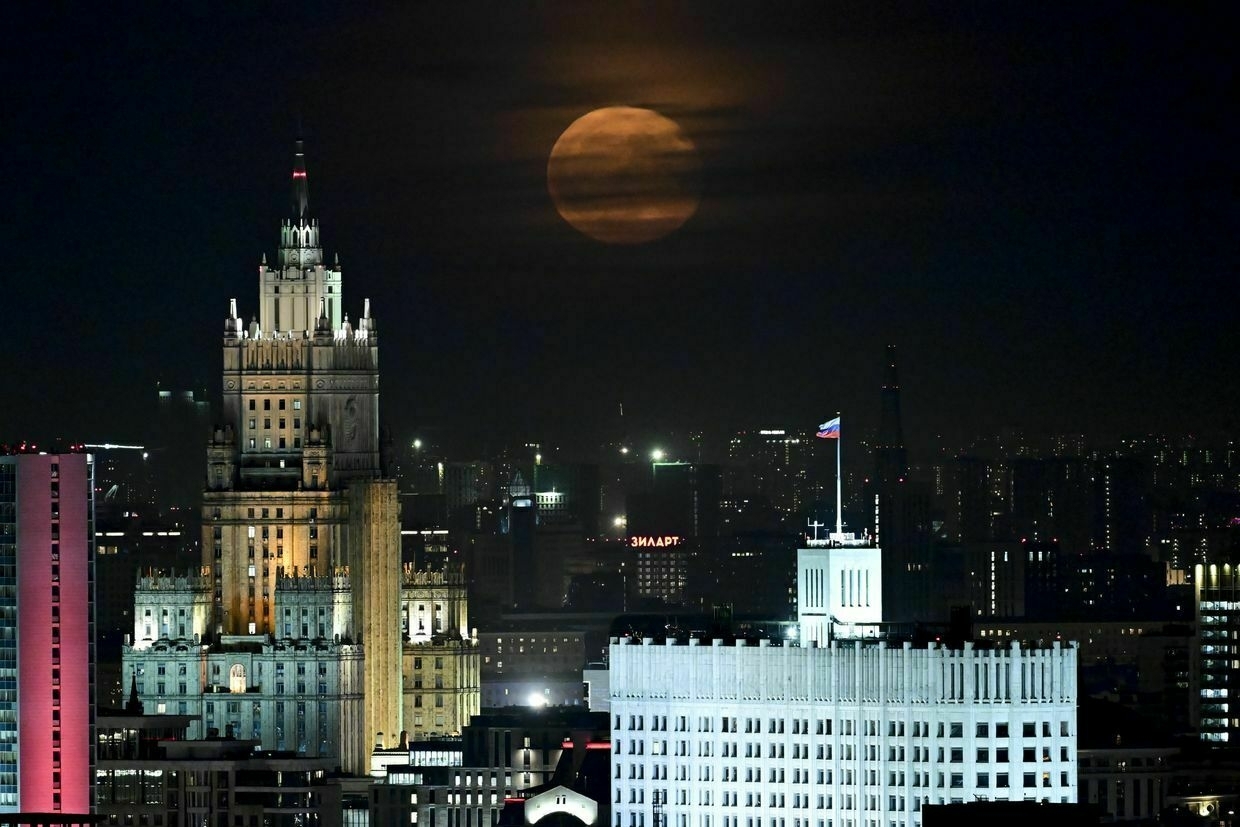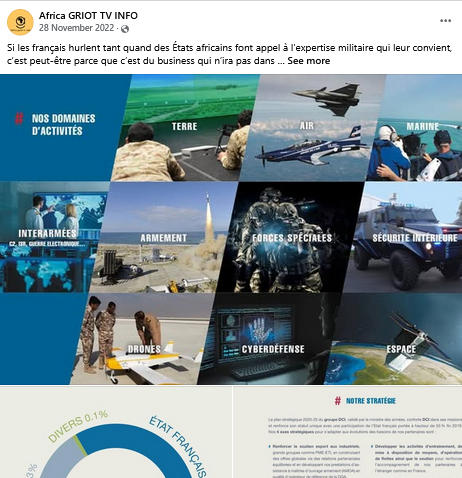-
Netherlands, Belgium hand over 2 minehunters to boost Ukraine’s naval defenses

The Netherlands and Belgium have delivered two minehunter vessels to Ukraine to support maritime security in the Black Sea, Dutch Defense Minister Ruben Brekelmans announced on June 26.
“The Netherlands and Belgium are transferring two minehunters to Ukraine. A vital contribution to Black Sea security, and key to safeguarding trade routes and global food supply,” Brekelmans said on X. He added that Ukrainian crews and technicians were trained “in record time.”
According to the Dutch Defense Ministry, the vessels involved are the Belgian ship BNS Narcis and the Dutch Zr.Ms. Vlaardingen. The official handover ceremony took place earlier in Zeebrugge, Belgium, but was disclosed only later due to security concerns.
“The major ports of Odesa and the Black Sea shipping lanes are the lifeblood of the Ukrainian economy,” Brekelmans said. “And (they are) under constant threat. Ukraine may not win the war at sea, but it can certainly lose the war there. We simply cannot let that happen. That is why it is so important for maritime security and free passage that Ukraine can use minehunters."
Since Russia’s full-scale invasion of Ukraine began in February 2022, the Netherlands has provided Kyiv with a combined 8.4 billion euros ($9.4 billion) in support, according to the Kiel Institute for the World Economy while Belgium has allocated over two billion euros (about $2.2 billion) in support, including military, financial, and humanitarian assistance.
Putin under pressure to declare war on Ukraine, but experts say Russia isn’t readyDespite suffering over 1 million casualties, pounding Ukrainian cities nightly with missiles and drones, and committing countless war crimes, one startling fact about Russia’s full-scale invasion remains — Moscow has yet to officially declare war on Ukraine. In February 2022, Russian President Vladimir Putin described what he believed was going to be a swift victory and the capture of Kyiv within days as a “special military operation.” Nearly three-and-a-half years later, the Kremlin is stuck The Kyiv IndependentChris York
The Kyiv IndependentChris York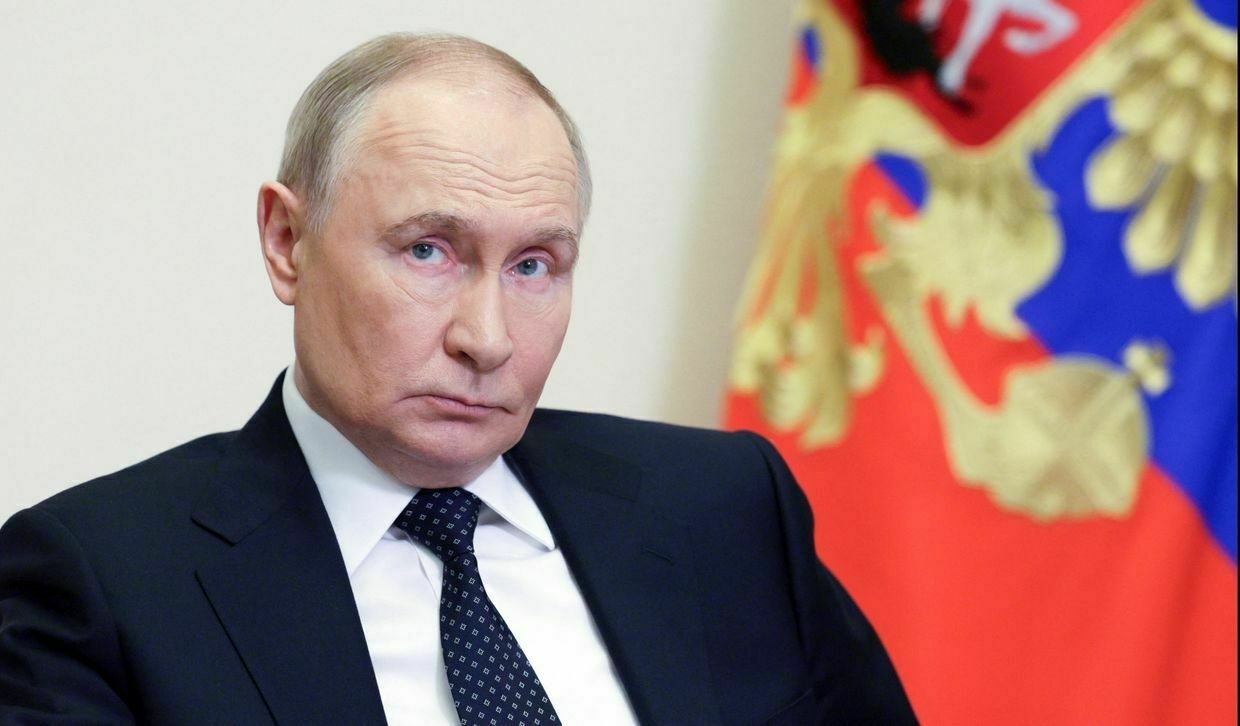
-
Russia's 'relentless' drone strikes cause over 3,000 civilian casualties in Ukraine, UN reports
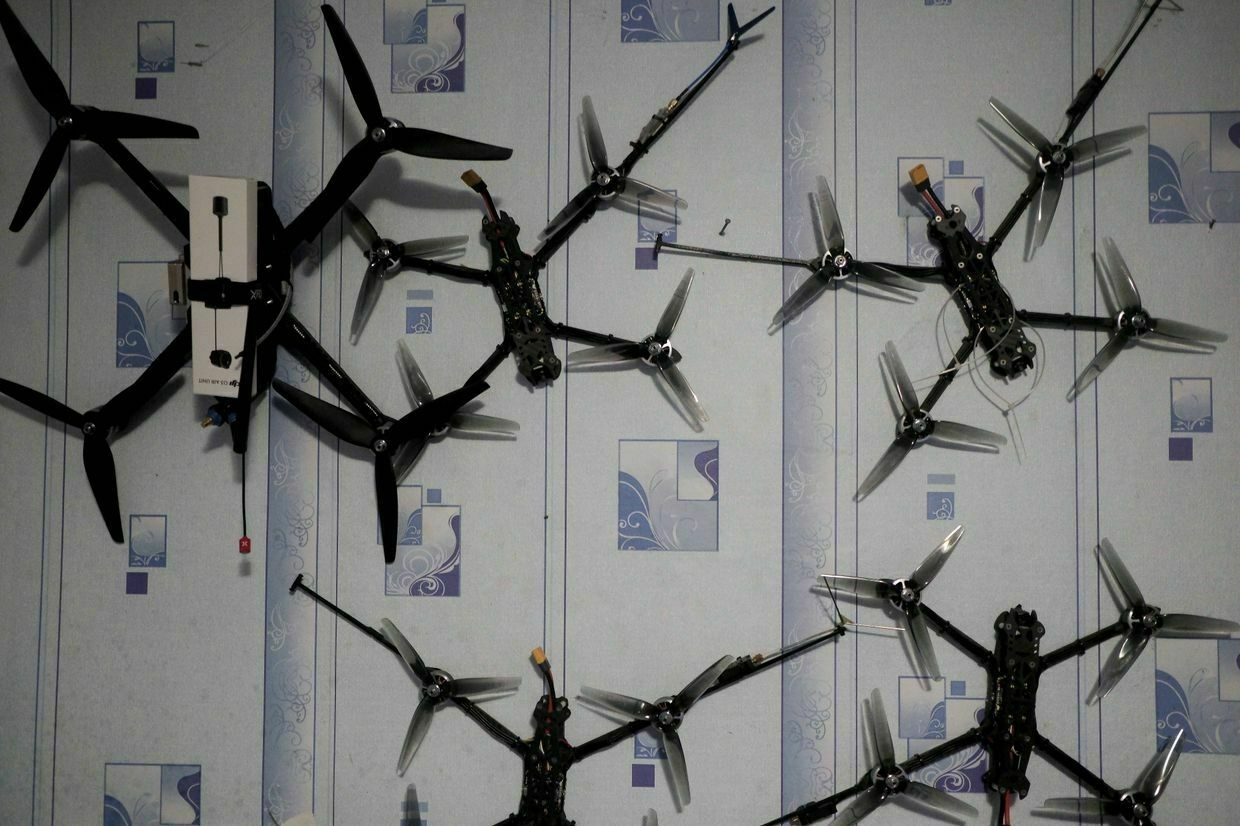
Short-range drone attacks have become one of the deadliest threats to civilians in Ukraine’s front-line regions, killing at least 395 people and injuring 2,635 between February 2022 and April 2025, according to a new bulletin by the UN Human Rights Monitoring Mission in Ukraine.
The report, “Deadly Drones: Civilians at Risk from Short-Range Drones in Frontline Areas of Ukraine,” highlights the growing use of first-person-view (FPV) drones by Russian forces and their devastating impact on the civilian population.
The bulletin documents attacks in which drone operators deliberately targeted civilians engaging in daily activities — driving private cars, riding bicycles, walking outdoors, or evacuating others in clearly marked ambulances.
“Although individually less destructive than artillery or missiles, the sheer scale and increasing frequency of short-range drone attacks have made them one of the deadliest weapons in Ukraine,” said Danielle Bell, head of the mission. “Over 3,000 civilian casualties — and the relentless frequency of these attacks — have not only caused immense human suffering but also instilled fear, severely disrupted daily life, and crippled access to essential services in several frontline communities."
The monitoring mission documented, verified, and analyzed 3,030 civilian casualties resulting from short-range drones between 24 February 2022 and 30 April 2025. The researchers conducted site visits to very high-risk areas, including the southern city of Kherson, Zolochiv in Kharkiv Oblast, and other front-line locations. Investigators interviewed survivors and witnesses of drone attacks, medical personnel, and humanitarian workers to assess the full impact of these strikes on civilian life.
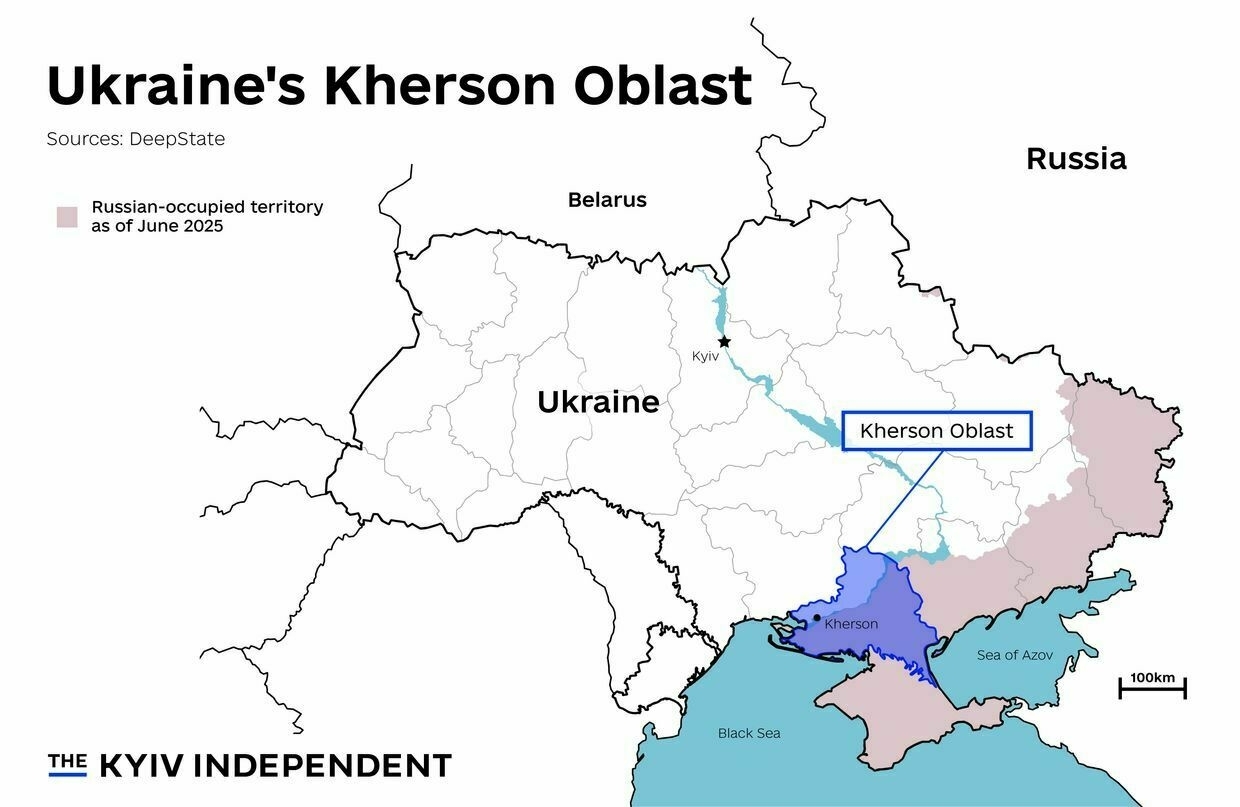
Ukraine’s Kherson Oblast (Nizar al-Rifai/The Kyiv Independent) Casualties surged in late 2023 and early 2024, with numbers suddenly doubling in July 2024. April 2025 marked the deadliest month on record, with 42 civilians killed and 283 injured. Drone strikes continued into May and June.
On 23 June, a 65-year-old driver was killed in Kostiantynivka, Donetsk Oblast, when a drone struck a minibus. In Kharkiv region, a 58-year-old volunteer was killed on 22 May when a drone dropped a munition on a residential balcony. On 20 May, six civilians were injured when a drone hit a bus in Kherson Oblast.
The vast majority of casualties — 89% — occurred in territory controlled by the Ukrainian government. The UN says these attacks violate international humanitarian law, particularly the principles of distinction and precaution, and may in some cases constitute war crimes.
Facing manpower shortage, Ukrainian brigade turns to women in first-ever female recruitment driveEditor’s note: This article originated as a winning story idea in a vote by members of the Kyiv Independent’s community. Join our community today and join our exclusive members-only Discord channel, where you can discuss and suggest stories, ask our journalists questions, and more. “Her strength is herThe Kyiv IndependentNatalia Yermak
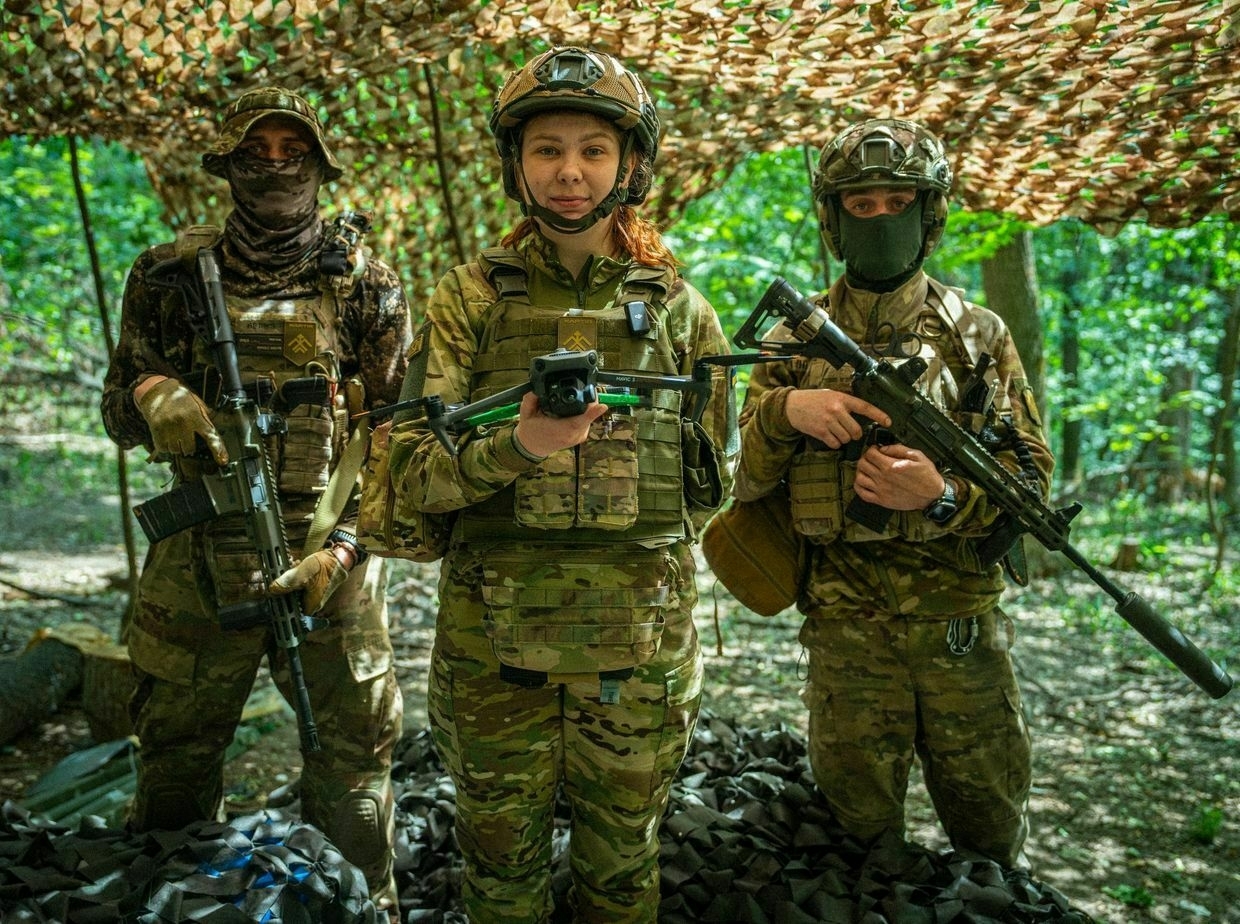
-
Russia offers cash to teachers to Russify occupied Ukraine, report says
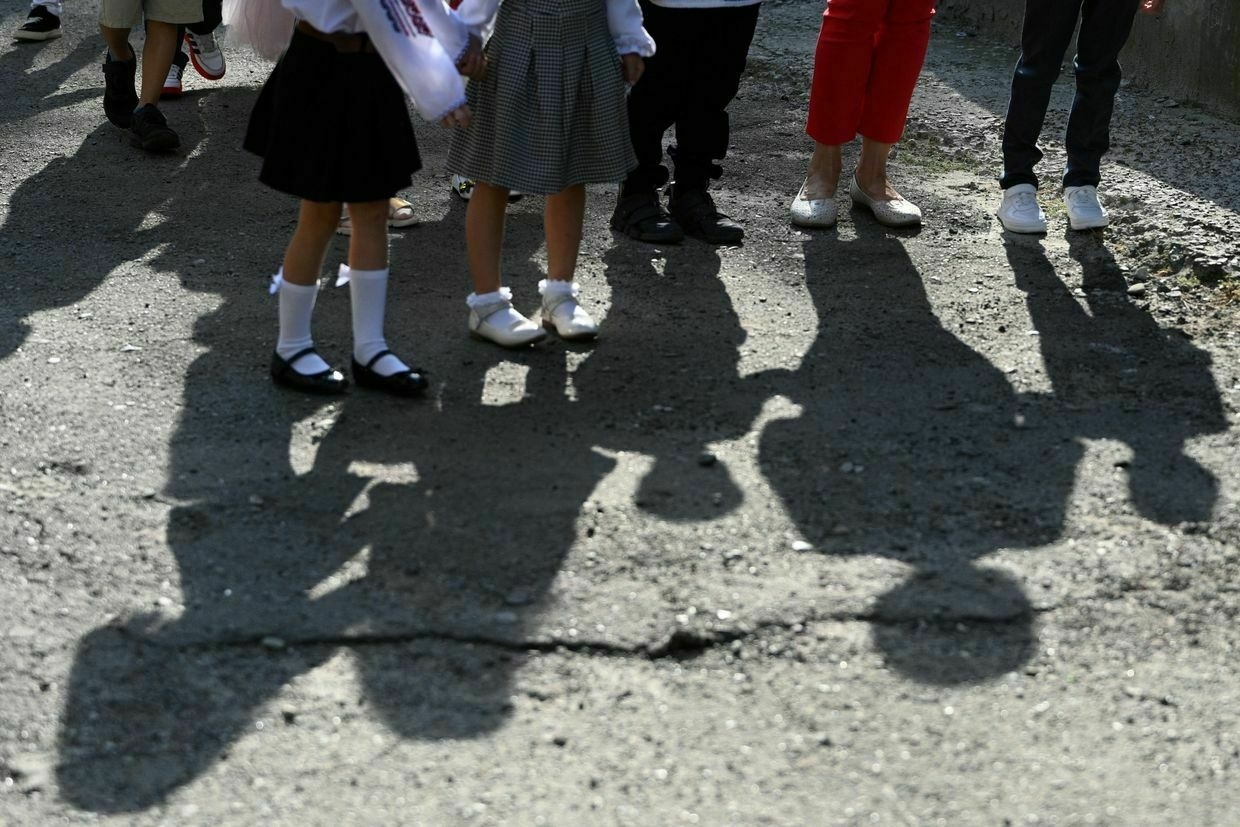
Russia is using financial incentives to recruit teachers, cultural workers, and coaches to work in occupied parts of Ukraine in a campaign aimed at reshaping local identity and fostering loyalty to Moscow’s regime, according to a report published by the Center for European Policy Analysis (CEPA) on June 26.
The Kremlin is offering up to two million rubles (around $22,000) to Russian teachers who agree to work for five years in occupied areas of Donetsk, Luhansk, Zaporizhzhia, and Kherson oblasts, and one million rubles for positions in Crimea.
The initiative, an extension of Russia’s “Zemskyi Uchitel” (Rural Teacher) program, which originally targeted underserved regions in Russia, was formally launched in the newly occupied Ukrainian territories in 2024 — though Russian educators began arriving as early as 2022.
Over 100 teachers have relocated to Crimea through the program, according to Ukraine’s Regional Center for Human Rights/ Most of them arrived from regions including Krasnodar, Altai Krai, Tomsk, Novosibirsk, Saratov, Tyumen, Ivanovo, and the Republic of Udmurtia.
“We have documented cases of teachers — and people assigned to managerial roles, such as school principals and deputy heads — arriving as early as 2022,” said Kateryna Rashevska of Ukraine’s Regional Center for Human Rights. “The first group came from Dagestan, arriving in the occupied Zaporizhzhia region, and by 2024, there were already 37 teachers from Dagestan working there.”
According to Rashevska, these teachers often lead courses in Russian language, history, and “basics of life safety and defense of the Motherland” — classes focused on conscription and military training. “These people are also involved in reprogramming Ukrainian children, attempting to raise them as Russian patriots and future members of the Russian armed forces,” she added.
In parallel, Russia is also exerting pressure on Ukrainian teachers in occupied areas to adopt the Russian curriculum. Those who refuse face serious consequences. “In Berdiansk, a school principal was deported for refusing to open the school under Russian standards,” said Mariia Sulialina, head of Ukrainian NGO Almenda. “According to the occupiers, his stance and influence also discouraged other teachers from working in Russian-run schools.” Sulialina noted that teachers are now required to praise President Vladimir Putin and report “extremist behavior” among students — often defined as pro-Ukrainian views.
Human rights experts say these efforts amount to colonization and are violations of international law, including Article 49 of the Geneva Convention and Article 8 of the Rome Statute. “Russia plans to move another 100 teachers into occupied areas in 2025 — a clear example of colonization,” Rashevska said. Despite existing legal tools, she added, “The International Criminal Court still doesn’t prioritize colonization… even though these federally coordinated programs involving teachers, cultural workers, and coaches create a clear chain of command.”
Putin under pressure to declare war on Ukraine, but experts say Russia isn’t readyDespite suffering over 1 million casualties, pounding Ukrainian cities nightly with missiles and drones, and committing countless war crimes, one startling fact about Russia’s full-scale invasion remains — Moscow has yet to officially declare war on Ukraine. In February 2022, Russian President Vladimir Putin described what he believed was going to be a swift victory and the capture of Kyiv within days as a “special military operation.” Nearly three-and-a-half years later, the Kremlin is stuck The Kyiv IndependentChris York
The Kyiv IndependentChris York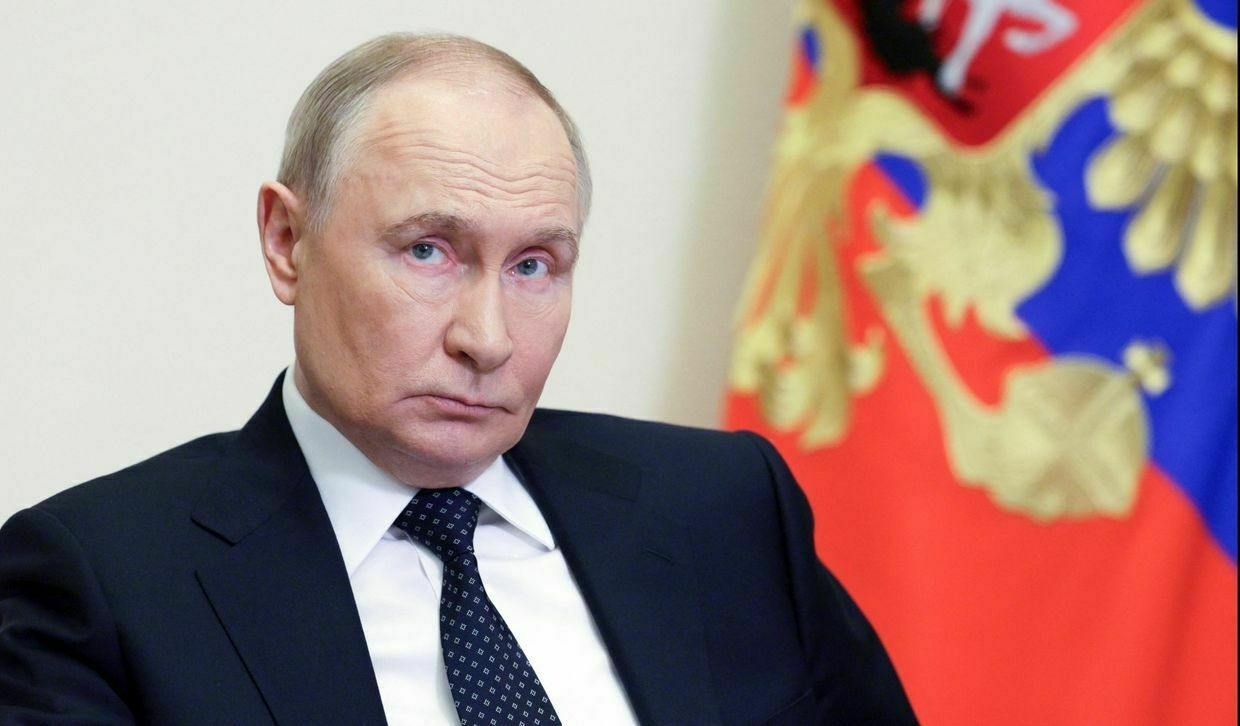
-
European companies shipping critical missile parts to Russia, Zelensky tells EU
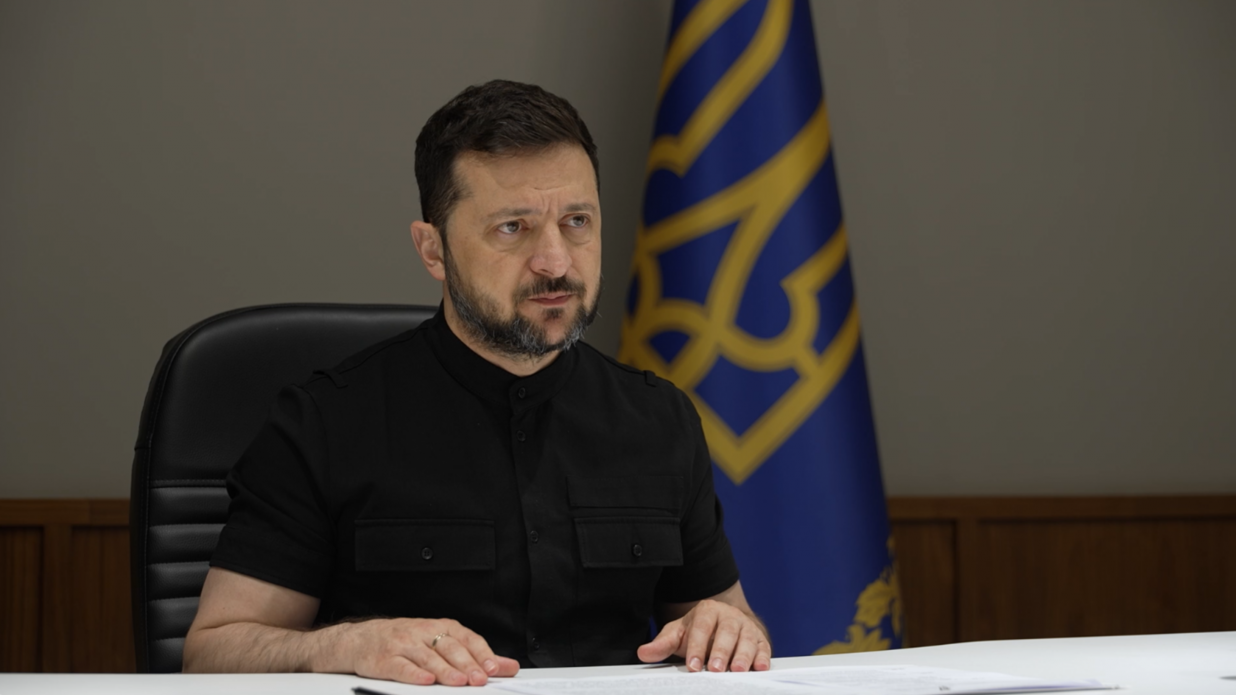
European firms continue to ship critical weapons components to Russia, President Volodymyr Zelensky told the European Council on June 26 in a plea for tougher EU sanctions against Moscow.
“Some European companies are still sending critical components to Russia. These end up in missiles and other weapons used to kill us, kill Ukrainians,” Zelensky said in a video address to the European Council summit in Brussels.
Ukraine is in the process of identifying these materials and will pass along evidence to EU officials, he said.
Zelensky’s remarks were part of a broader appeal for the EU to expand and strengthen economic penalties on Russia. While the bloc reached an agreement in Brussels to extend current sectoral sanctions for another six months, it is still debating its proposed 18th package of sanctions against Russia.
Zelensky urged the EU to pass “a truly strong” 18th package, targeting “Russia’s oil trade, its shadow tanker fleet, Russian banks and other financial instruments, and the supply chains that bring equipment or parts for making weapons.”
The sanctions should not only penalize Russia’s so-called “shadow fleet” vessels, but also the tankers' captains and the ports Russia uses to export oil, Zelensky said.
The president also reiterated his call to drop the current oil price cap to $30 per barrel.
“Russia’s military ambitions grow when its oil revenues are high,” he said.
Several European countries still rely heavily on Russian oil and gas, Zelensky pointed out. Ukraine understands the complexities of this situation and treads carefully in order to respect its partnership with the EU.
“Yet, sadly, we don’t always feel this same understanding in return when it comes to Ukraine’s needs,” Zelensky said.
“It feels especially strange to hear such strong criticism — even political pressure from some leaders — while our respect for EU rules allows oil to keep flowing.”
While Zelensky did not specify any particular EU leaders, Slovak Prime Minister Robert Fico in June threatened to veto the 18th sanctions package, citing concerns over Slovakia’s reliance on Russia’s energy imports. Fico has emerged as one of the EU’s strongest supporters of Russia, alongside Hungarian Prime Minister Viktor Orban.
Orban took aim against Kyiv at the Brussels summit by blocking a unanimous statement of support for Ukraine’s accession to the EU. All 26 other member states supported the statement, while Hungary was the sole opponent.
In his address to the Council, Zelensky urged the EU to send a clear signal of support for Ukraine’s European path. Ukraine has fulfilled its obligations in the accession process, the president argued, and deserves recognition of its progress.
“Any delay by Europe at this point could create a global precedent and a reason to doubt Europe’s words and commitments,” he said.
Putin under pressure to declare war on Ukraine, but experts say Russia isn’t readyDespite suffering over 1 million casualties, pounding Ukrainian cities nightly with missiles and drones, and committing countless war crimes, one startling fact about Russia’s full-scale invasion remains — Moscow has yet to officially declare war on Ukraine. In February 2022, Russian President Vladimir Putin described what he believed was going to be a swift victory and the capture of Kyiv within days as a “special military operation.” Nearly three-and-a-half years later, the Kremlin is stuck The Kyiv IndependentChris York
The Kyiv IndependentChris York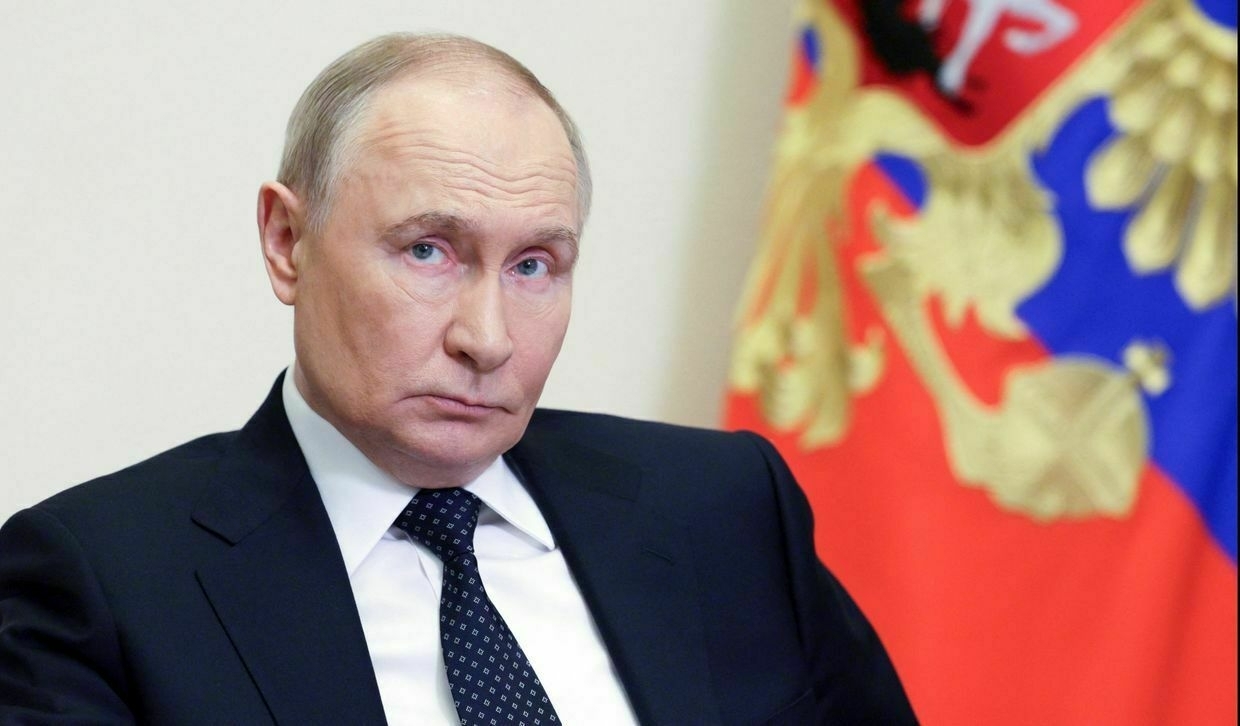
-
Suspected sabotage: German military trucks destined for Ukraine torched, raising tensions with Russia
In a possible act of sabotage benefiting Russia, German military trucks were reportedly set on fire over the weekend, according to pro-Russian Telegram channels. The trucks were allegedly about to be decommissioned and donated to the Ukrainian Armed Forces.
A video posted by the Telegram channel "Crazy about War", shows at least five torched vehicles. Some of these vehicles appear to belong to the German Armed Forces, recognizable by their military license plates and Bundeswehr crosses on their cabs.
The footage shows MAN military trucks, and at least one seems to be part of the Bundeswehr’s telecommunications unit (Fernmeldetruppe), identifiable through standard NATO tactical insignia.
Other pro-Russian channels have circulated photos and videos, hinting that the arson served Russian interests. The channel "Military Informant" refers to the arsonists as "unknown well-wishers," while "Crazy about war" calls them "our people".
German media reports confirm that a fire broke out in Erfurt on Sunday night, damaging German military vehicles. MDR reports the fire occurred at the premises of MAN Trucks & Bus Service GmbH, an official service center for MAN Truck & Bus.
Previously, Germany, along with Poland and the UK, has accused Russian intelligence of recruiting agents for terrorist acts and sabotage through Telegram.
-
Trump wants to slash war crimes investigation funds, Reuters reports
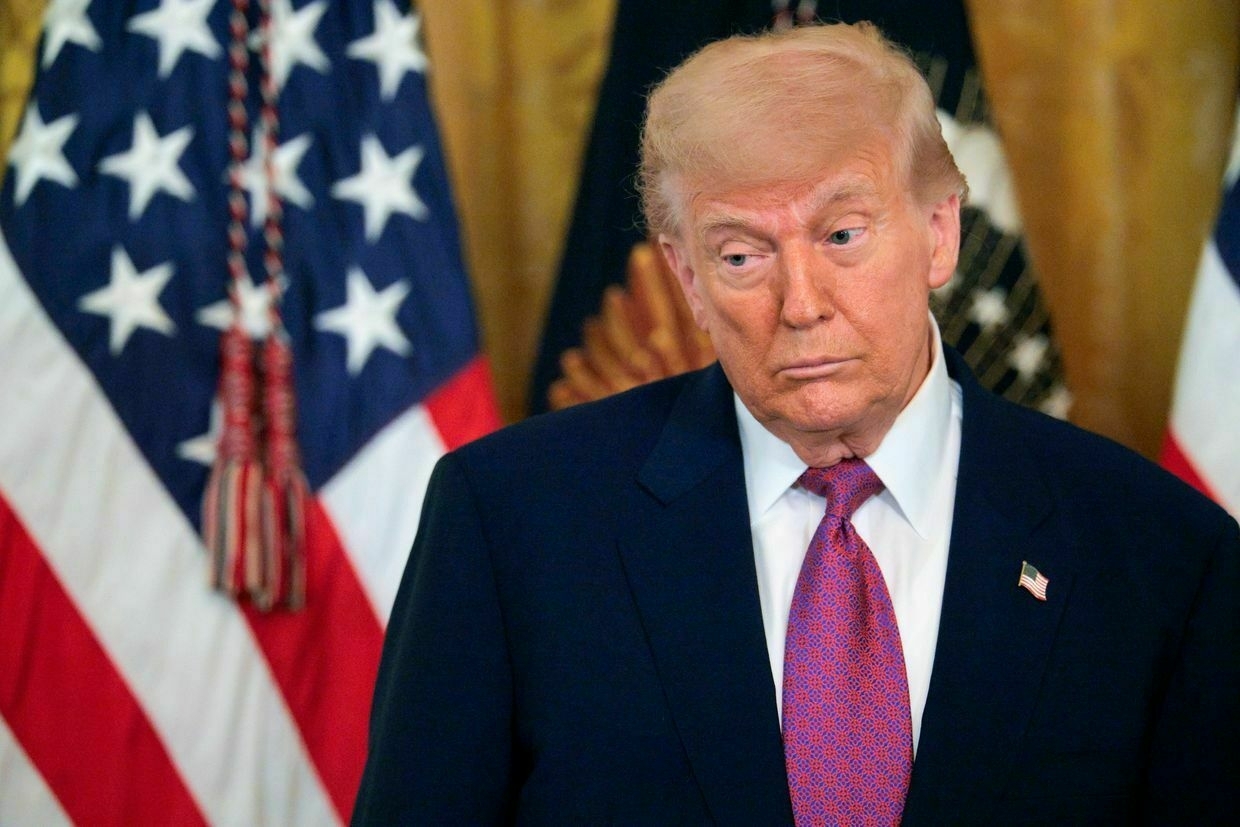
The White House has recommended terminating U.S. funding for multiple programs that investigate war crimes worldwide, including Russian war crimes in Ukraine, Reuters reported on June 26.
Since U.S. President Donald Trump’s inauguration in January, the administration has imposed sweeping layoffs and budget cuts, targeting foreign aid, media outlets, and federal workers. Many of the cuts have directly impacted programs assisting Ukraine.
The Trump administration’s Office of Management and Budget (OMB) on June 25 recommended canceling funds for nearly two dozen programs that investigate and seek accountability for war crimes, two U.S. sources familiar with the matter told Reuters. The outlet also reviewed internal government documents to support their claims.
The targeted programs include groups investigating Russian war crimes in Ukraine, as well as atrocities in Myanmar, Syria, Iraq, Nepal, Sri Lanka and the Gambia.
Multiple programs designated for termination are operating in Ukraine, three sources told Reuters. One of the groups is Global Rights Compliance, which gathers evidence of Russian war crimes across the country, including torture and sexual violence. Another is Legal Action Worldwide, a legal aid organization that supports efforts to prosecute suspects accused of perpetrating war crimes in Ukraine.
The State Department will have the opportunity to appeal the OMB’s recommendation, though two U.S. officials told Reuters that Secretary of State Marco Rubio is not likely to advocate for most of the programs.
Rubio could potentially argue to preserve a few key programs, such as those supporting the prosecution of Russian war crimes in Ukraine, one source said.
According to an internal State Department email viewed by Reuters, the department has until July 11 to submit their arguments on behalf of preserving any of the targeted war crimes accountability programs.
The Trump administration’s funding cuts have already impacted humanitarian aid and civil society programs across Ukraine as the country faces its fourth year of Russia’s full-scale invasion. One of Trump’s first acts in his second term was to freeze all U.S. foreign assistance for 90 days. He then worked alongside former ally Elon Musk to dismantle the U.S. Agency for International Development (USAID).
Among the defunded organizations is Ukraine Conflict Observatory, the leading U.S.-backed initiative documenting Russia’s abduction of Ukrainian children. A part of Yale University’s Humanitarian Research Lab, the group will end its efforts to track and monitor illegally deported Ukrainian children as of July 1 due to funding cuts.
The White House also previously disbanded the U.S. Justice Department’s War Crimes Accountability Team and fired a coordinator responsible for collecting data on Russian war crimes in Ukraine.
Trump gets king’s treatment at NATO summit while Ukraine sits on the sidelinesTHE HAGUE, Netherlands — As NATO leaders convened in The Hague for a two-day summit on June 24–25, allies and Kyiv braced for the first annual meeting since U.S. President Donald Trump’s return to office. With the Israel-Iranian conflict dominating the news and the summit agenda focused onThe Kyiv IndependentMartin Fornusek
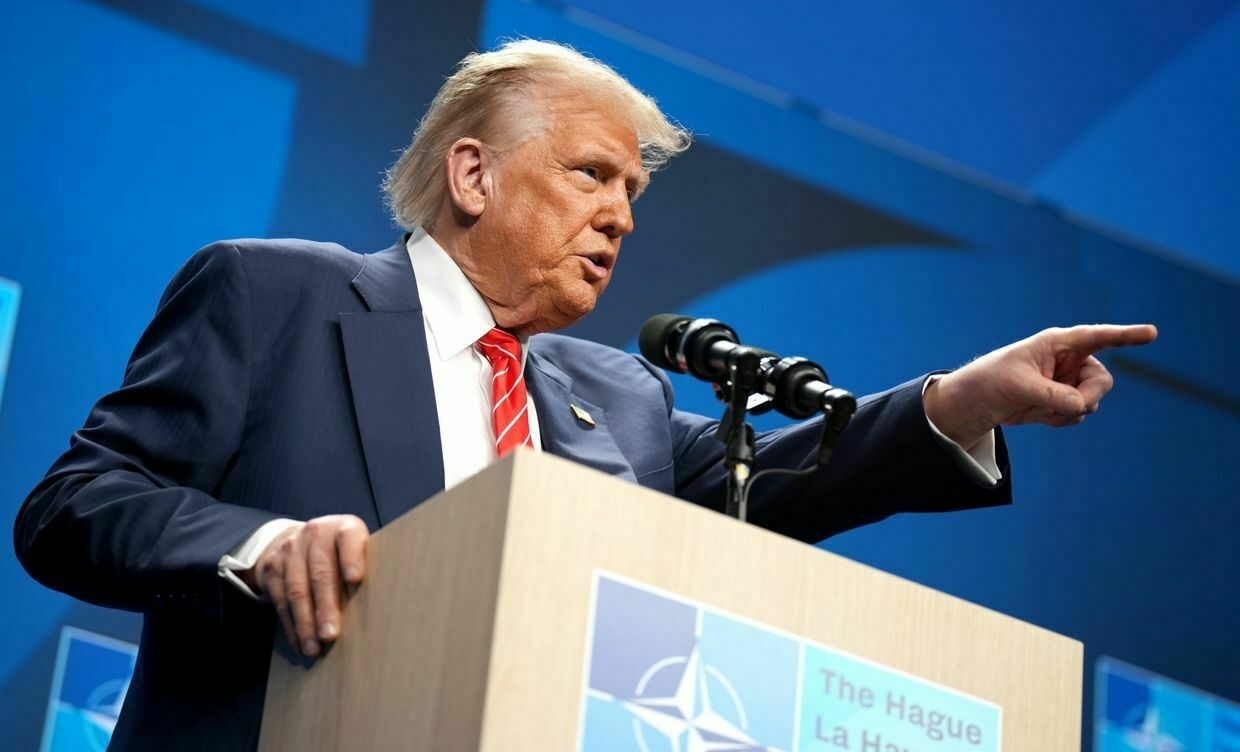
-
EU agrees to extend sanctions against Russia for 6 months
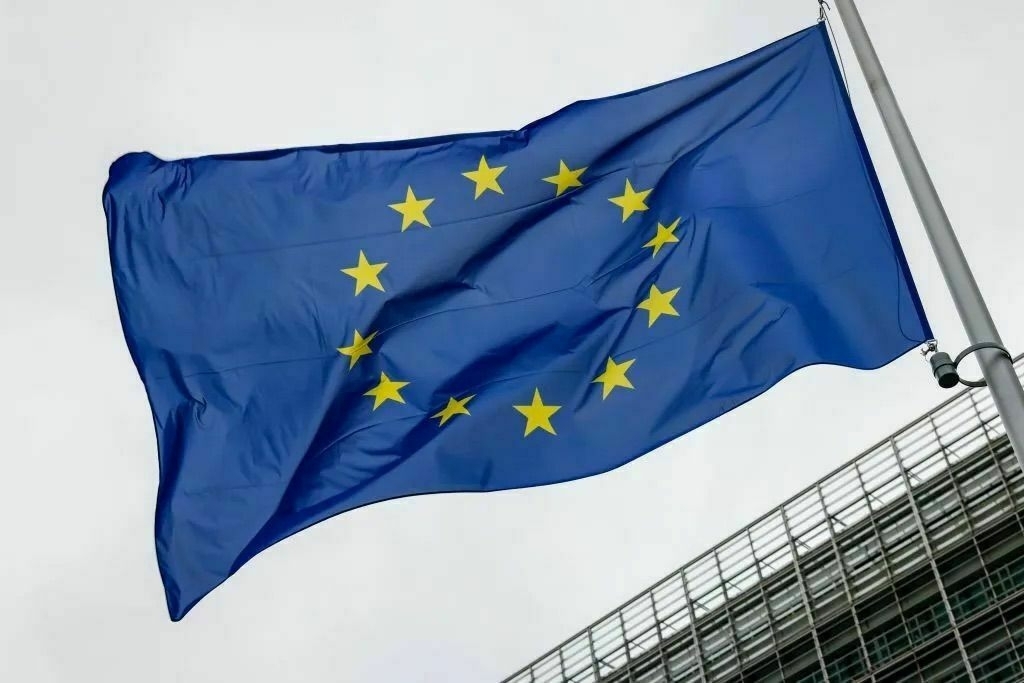
Editor’s Note: This is a developing story and is being updated.
The European Union on June 26 reached an agreement to extend sanctions against Russia for another six months, an undisclosed EU official told the Kyiv Independent.
Polish Prime Minister Donald Tusk confirmed shortly afterwards that the agreement had been reached.
The EU renews its sectoral sanctions against Russia every six months in January and July. Sanctions encompass a broad array of economic areas, including restrictions on trade, finance, technology and dual-use goods, industry, transport, and luxury goods.
The agreement comes amid fears that Hungary, one of the bloc’s most Kremlin-friendly member states, would attempt to block the sanctions extension.
The European bloc first adopted sanctions related to Russian aggression on July 31, 2014, after Moscow occupied Crimea and invaded Ukraine’s eastern Donbas region. The EU has significantly scaled up its sanctions measures in the wake of the full-scale invasion, adopting 17 major sanctions packages since February 2022.
The EU on June 10 unveiled its 18th package of sanctions against Russia, expanding current measures to include new restrictions on energy, banking, oil, and other sectors. The initial proposal included banning transactions involving the Nord Stream 1 and Nord Stream 2 pipelines and reducing the oil price cap from $60 to $45 per barrel.
Soon after the package was announced, however, the EU reportedly postponed the effort to reduce the oil price cap.
Ukraine war latest: Russia’s advance in Sumy Oblast ‘halted’; Kyiv, Moscow carry out POW swapKey developments on June 26: * “50,000 Russian troops pinned down” — Ukraine halts advance in Sumy Oblast, summer offensive “faltering,” Syrskyi says * Ukraine, Russia conduct new POW swap under Istanbul deal * North Korea likely to send more troops to Russia by August, South Korea says * Explosions reported in Moscow, RussiaThe Kyiv IndependentThe Kyiv Independent news desk
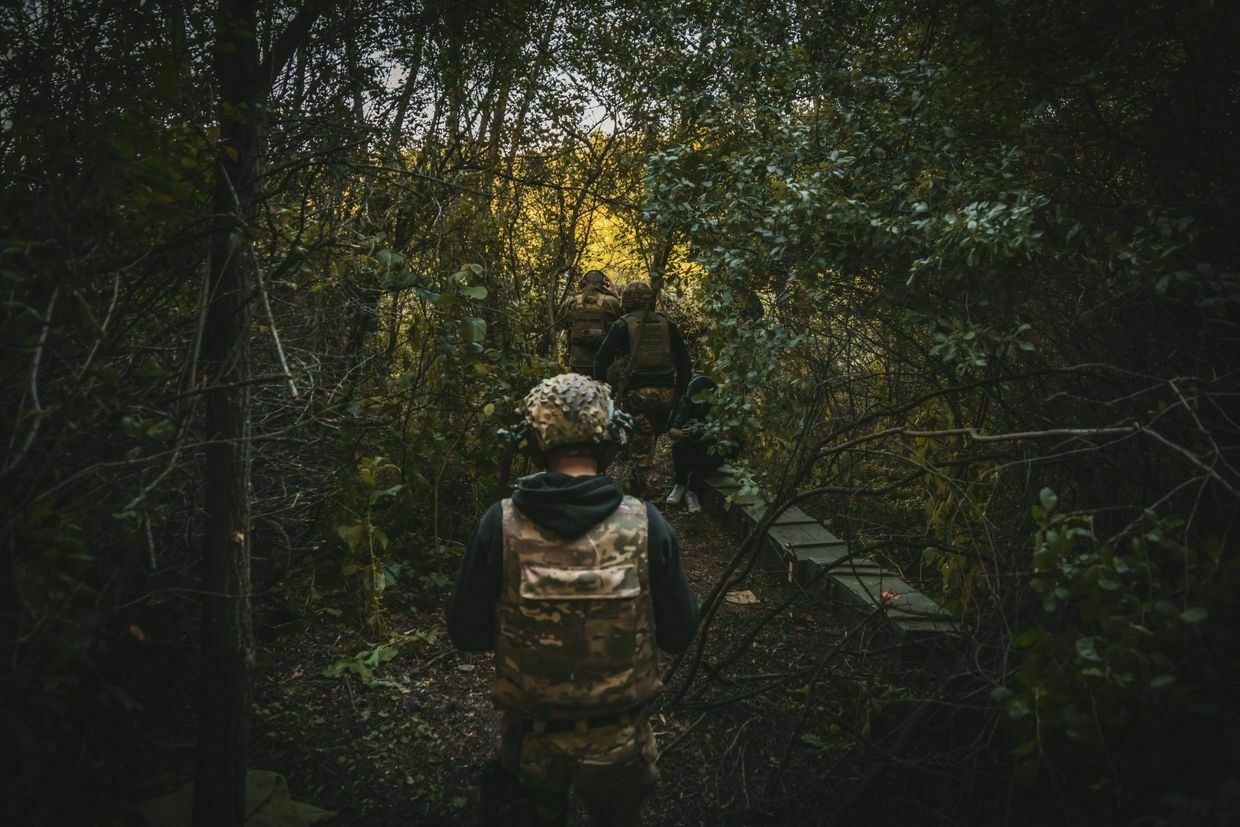
-
Ukrainian drones strike Russian S-400 air defense system in occupied Crimea, HUR says
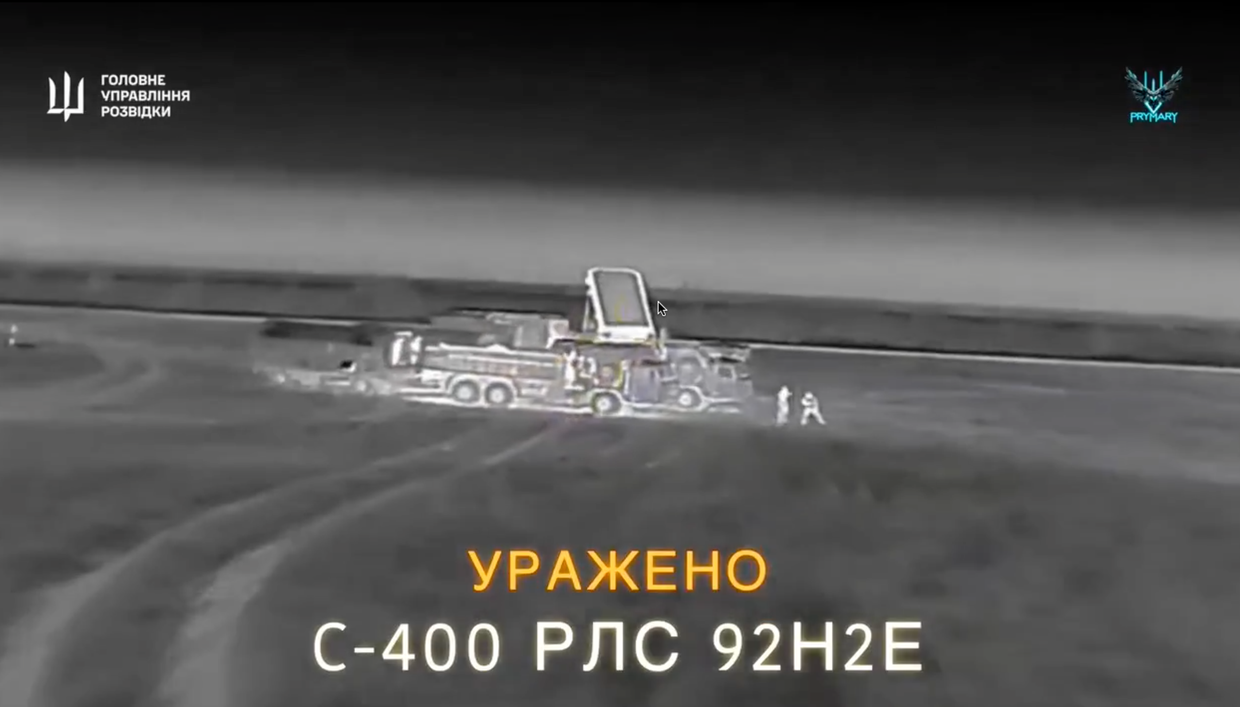
Ukrainian drones struck air defense equipment in Russian-occupied Crimea, damaging radar units and components of the S-400 Triumph system, Ukraine’s military intelligence agency (HUR) claimed on June 26.
The drone strike was carried out by the agency’s “Ghosts” unit, HUR said. Video footage of the operation published on HUR’s official Telegram channel shows the trajectory of multiple drones as they approach and hit their targets.
The attack damaged “critical and expensive components” of Russia’s S-400 Triumph air defense system, including two 92N2E multifunctional control radars, two 91N6E detection radars, and an S-400 launcher, according to HUR.
“Radars are the ‘eyes’ of the enemy’s air defense system. Without them, anti-aircraft systems become combat ineffective,” HUR wrote.
The Kyiv Independent could not verify these claims.
0:00/Video footage of an alleged Ukrainian drone strike on a Russian S-400 air defense radar system in occupied Crimea, June 2025. (Ukraine’s military intelligence agency / Telegram) Earlier this month, the Atesh partisan group reported that a Ukrainian drone attack hit Russian military facilities near Simferopol. The group claimed on June 13 that Ukrainian drone attacks likely hit a Russian air defense system.
Ukraine has previously carried out successful attacks on S-400 radar systems in Crimea and other regions, including Russia’s Belgorod Oblast. Kyiv regularly launches strikes on military and industrial targets in both Russia and Russian-occupied regions of Ukraine.
Russia has illegally occupied Crimea since 2014, transforming the peninsula into a heavily militarized stronghold. Moscow uses the region to support its war in Ukraine, launching missiles from the Black Sea and exploiting the peninsula as a key logistics and transport hub.
The Kerch Airport in Crimea has also been repurposed from civilian to military use, with Moscow-backed proxies transferring part of the airport’s land to the Russian Defense Ministry in spring 2025, according to an investigation by Radio Liberty/Radio Free Europe.
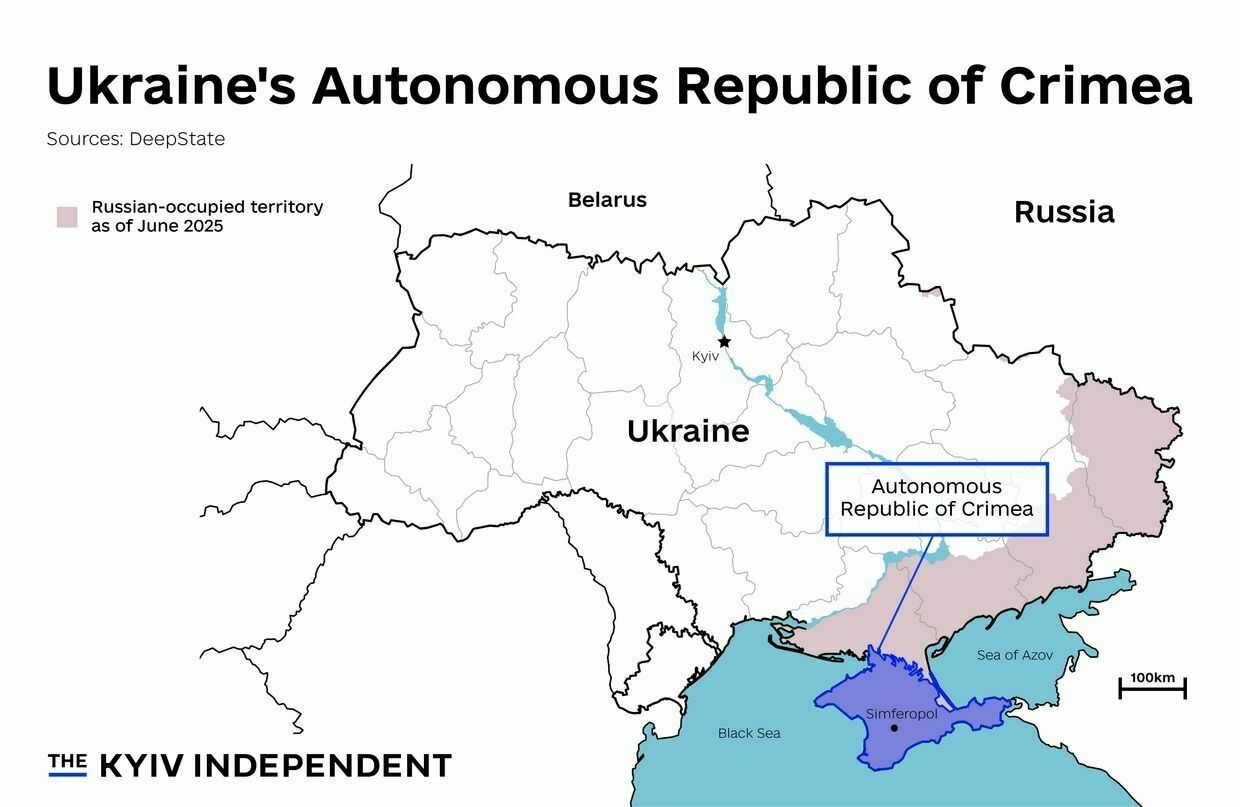
Ukraine’s Autonomous Republic of Crimea (Nizar al-Rifai/The Kyiv Independent) -
Ukrainian Armed Forces drones destroyed Russian equipment and warehouses – dozens killed!
-
Ukraine war latest: Russia's advance in Sumy Oblast 'halted'; Kyiv, Moscow carry out POW swap
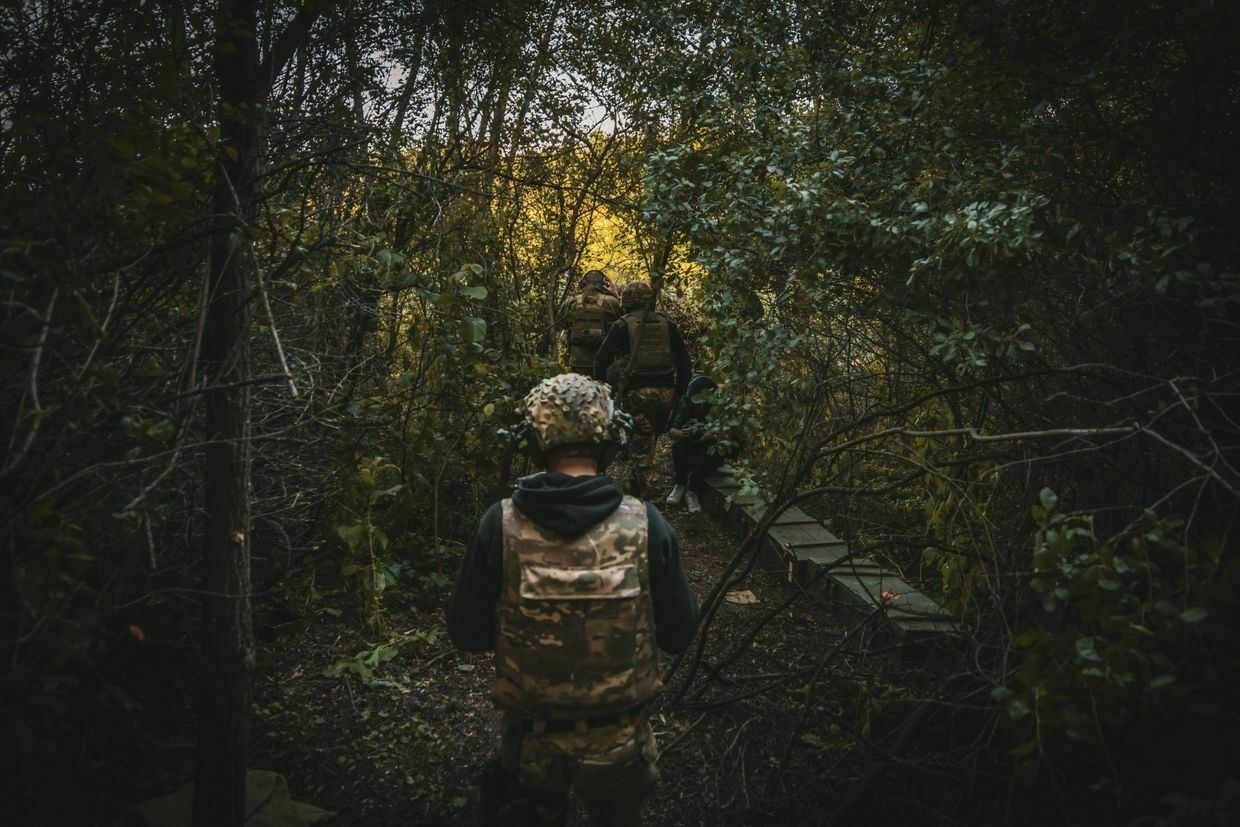
Key developments on June 26:
- “50,000 Russian troops pinned down” — Ukraine halts advance in Sumy Oblast, summer offensive “faltering,” Syrskyi says
- Ukraine, Russia conduct new POW swap under Istanbul deal
- North Korea likely to send more troops to Russia by August, South Korea says
- Explosions reported in Moscow, Russia claims 50 Ukrainian drones downed across country
Ukraine has halted Russia’s advance in Sumy Oblast, stabilizing the front line and blunting the momentum of Moscow’s summer offensive, Commander-in-Chief Oleksandr Syrskyi said on June 26.
“Based on the results of May and June, we can say that this year’s wave of the enemy’s summer offensive from Russian territory is faltering,” Syrskyi said, reporting that Russian troops in the northeastern border region had been stopped.
Moscow launched its new summer campaign in May, aiming to push deeper into Ukraine’s northeast and eastern regions, disregarding Kyiv’s calls for an unconditional ceasefire.
Russian forces had made modest gains, occupying around 449 square kilometers (173 square miles) in May, the highest monthly total in 2025, according to the open-source intelligence group DeepState.
In Sumy Oblast, however, the line of contact has stabilized. Syrskyi said Ukrainian troops are not only defending but also reclaiming ground using active defense tactics.
“In certain areas, our units are liberating Ukrainian territory,” he said.
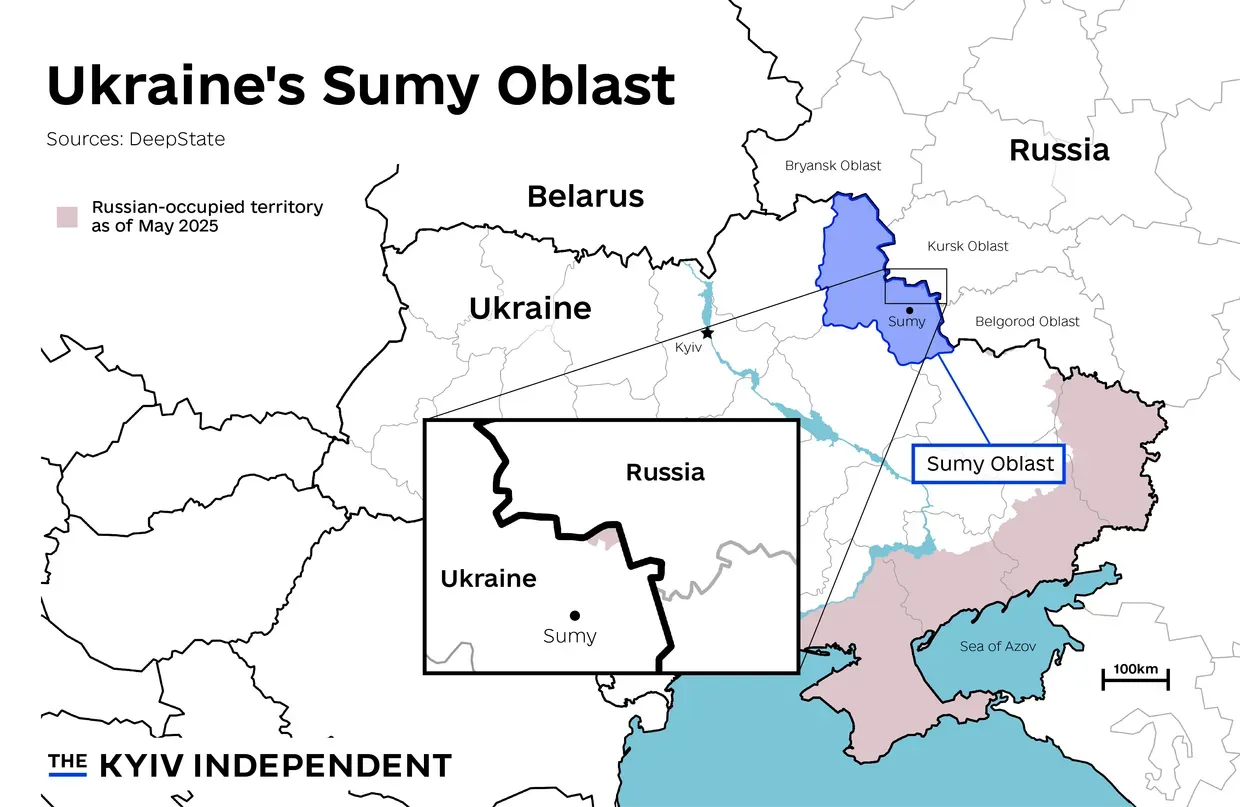
A map of Ukraine’s Sumy Oblast (Nizar al-Rifal/The Kyiv Independent) Ukraine, Russia conduct new POW swap under Istanbul dealUkraine has brought home a group of soldiers released from Russian captivity, President Volodymyr Zelensky said on June 26, marking yet another in a recent series of exchanges with Moscow.
“Today, soldiers of the Armed Forces, the National Guard, and the State Border Guard Service are returning home,” Zelensky said without revealing their numbers.
The exchange follows six similar swaps carried out in recent weeks in accordance with agreements reached between Kyiv and Moscow at the second round of peace talks in Istanbul on June 2.
As in the other recent swaps, the latest one focused on severely ill and wounded POWs and also included a group of young soldiers under the age of 25, the Coordination Headquarters for the Treatment of Prisoners of War (POWs) said.
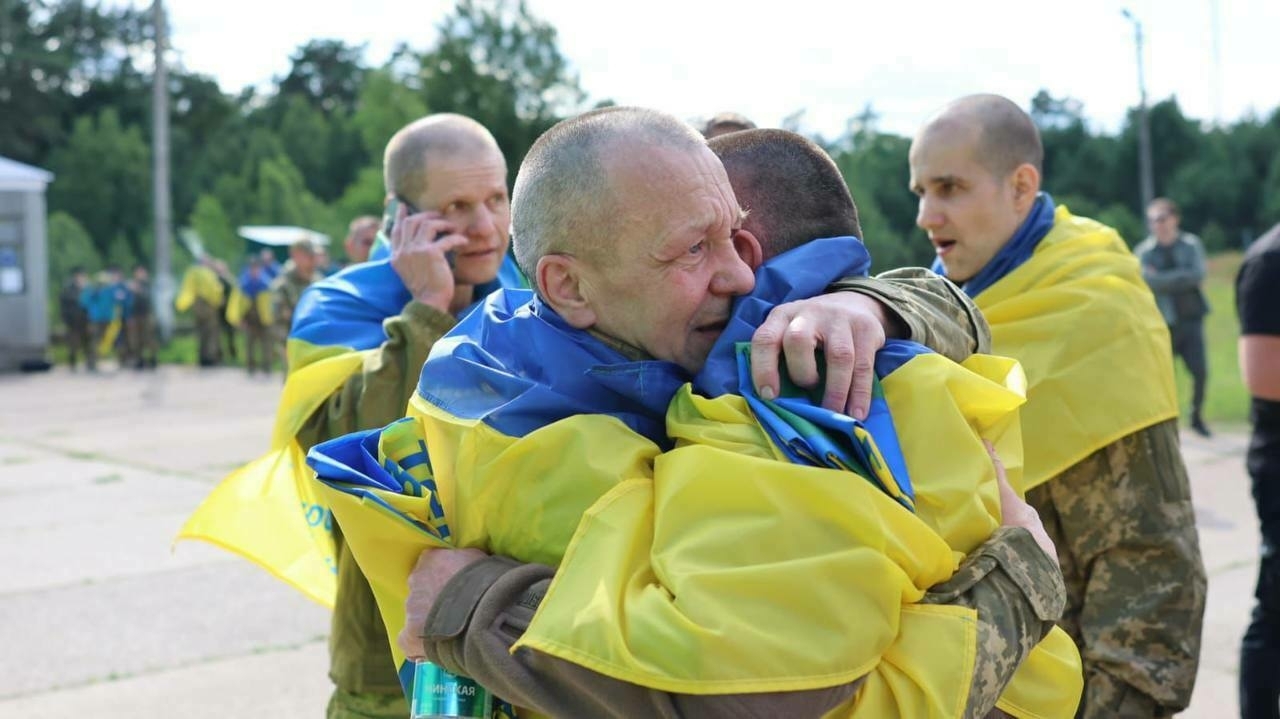
Ukrainian soldiers pictured after being released from Russian captivity on June 26, 2025. (President Volodymyr Zelensky/Telegram) Most of those released had been in Russian captivity since 2022, with the youngest being a 24-year-old soldier taken prisoner during the battle for Mariupol. The oldest of the freed captives was 62.
The released soldiers fought elsewhere in Donetsk, Luhansk, Kherson, Kharkiv, Sumy, and Kyiv oblasts. Among those freed are several officers, according to the headquarters.
“We are doing everything possible to find each person and verify information about every name,” Zelensky said. “We must bring all our people home."
Russia’s Defense Ministry also announced a prisoner exchange with the Ukrainian side, without specifying the number of soldiers involved.
Facing manpower shortage, Ukrainian brigade turns to women in first-ever female recruitment driveEditor’s note: This article originated as a winning story idea in a vote by members of the Kyiv Independent’s community. Join our community today and join our exclusive members-only Discord channel, where you can discuss and suggest stories, ask our journalists questions, and more. “Her strength is herThe Kyiv IndependentNatalia Yermak
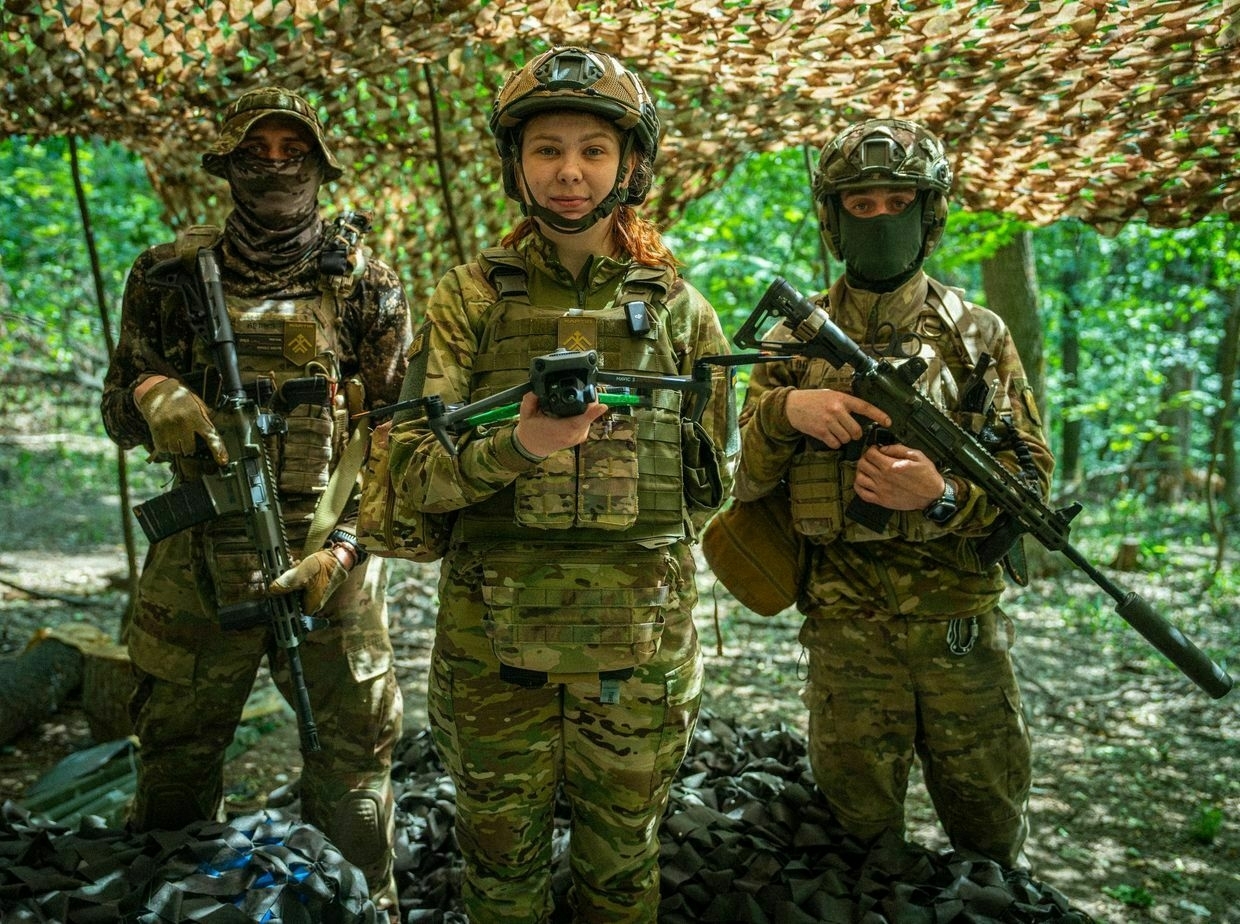
North Korea likely to send more troops to Russia by August, South Korea saysNorth Korea is likely to send more troops to Russia as early as July or August to bolster Moscow’s war effort against Ukraine, South Korea’s National Intelligence Service (NIS) said during a closed-door briefing, Yonhap reported on June 26.
According to lawmakers briefed by the NIS, Pyongyang has already begun recruiting soldiers for deployment to Russia. The latest intelligence adds to growing concerns about the expanding scope of North Korea’s involvement in Russia’s war.
The additional troop deployment would come on top of what Seoul estimates is already substantial support from North Korea, including the transfer of over 10 million artillery shells, and ballistic missiles in exchange for economic and technical assistance.
Yonhap’s reporting follows recent findings that Pyongyang may send up to 25,000 laborers to Russia to support drone production, specifically Shahed-type loitering munitions, at the Alabuga Special Economic Zone in Tatarstan, according to Japan’s NHK broadcaster.
In return, Pyongyang reportedly seeks training in drone operations, signaling an effort to integrate advanced unmanned aerial capabilities into its own military arsenal.
Trump gets king’s treatment at NATO summit while Ukraine sits on the sidelinesTHE HAGUE, Netherlands — As NATO leaders convened in The Hague for a two-day summit on June 24–25, allies and Kyiv braced for the first annual meeting since U.S. President Donald Trump’s return to office. With the Israel-Iranian conflict dominating the news and the summit agenda focused onThe Kyiv IndependentMartin Fornusek
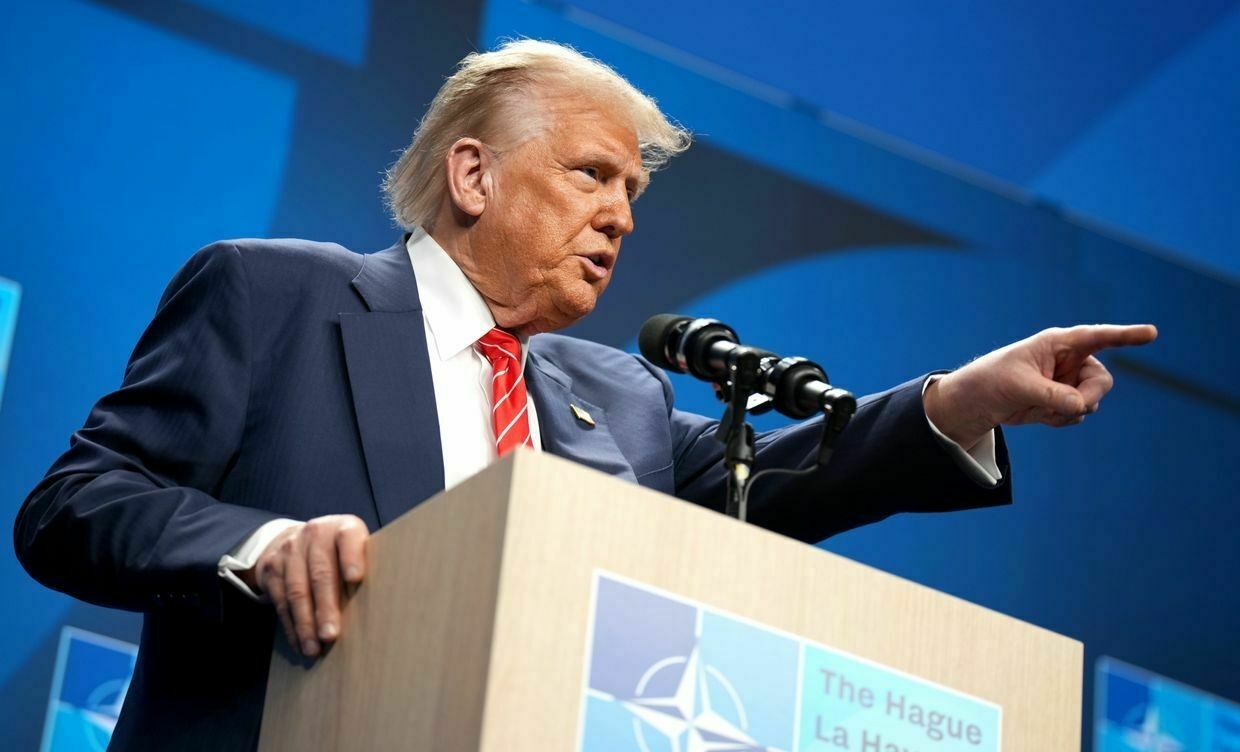
Explosions reported in Moscow, Russia claims 50 Ukrainian drones downed across countryExplosions were reported in Moscow overnight on June 26, prompting airport closures, with Russia’s Defense Ministry claiming 50 Ukrainian drones were downed across the country.
Moscow Mayor Sergey Sobyanin said emergency services were at the sites where two drones were downed.
According to the Shot Telegram channel, which appears to be close to Russian security forces, debris from a downed drone struck a residential building.
“Alarms went off everywhere,” a local resident told the channel.
Ukraine’s military regularly strikes military targets deep within Russia in an attempt to diminish Moscow’s fighting power as it continues its war against Ukraine.
Russia’s Defense Ministry later claimed 50 Ukrainian drones had been downed across the country, two of which were “flying towards Moscow."
The Kyiv Independent could not independently verify these claims.
Kaluga airport and Moscow’s Vnukovo airport had flight restrictions imposed amid the drone attack, Artyom Korenyako, a spokesperson for Russia’s state aviation agency Rosaviatsia, said early on June 26.
“The airport is temporarily not accepting or sending flights. Aircraft crews, air traffic controllers, and airport services must take all necessary measures to ensure flight safety,” he said.
The restrictions were later lifted.
Note from the author:
Ukraine War Latest is put together by the Kyiv Independent news desk team, who keep you informed 24 hours a day, seven days a week. If you value our work and want to ensure we have the resources to continue, join the Kyiv Independent community.
Putin under pressure to declare war on Ukraine, but experts say Russia isn’t readyDespite suffering over 1 million casualties, pounding Ukrainian cities nightly with missiles and drones, and committing countless war crimes, one startling fact about Russia’s full-scale invasion remains — Moscow has yet to officially declare war on Ukraine. In February 2022, Russian President Vladimir Putin described what he believed was going to be a swift victory and the capture of Kyiv within days as a “special military operation.” Nearly three-and-a-half years later, the Kremlin is stuck The Kyiv IndependentChris York
The Kyiv IndependentChris York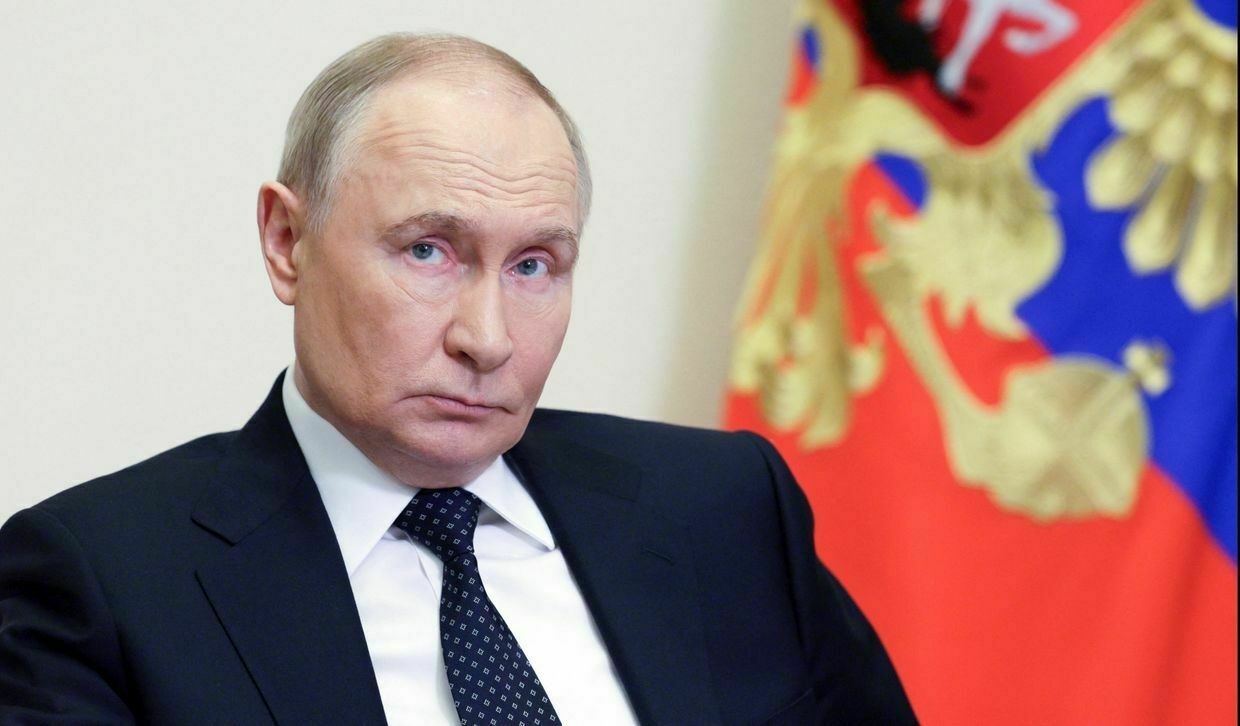
-
Hungary blocks EU statement backing Ukraine’s accession talks at Brussels summit
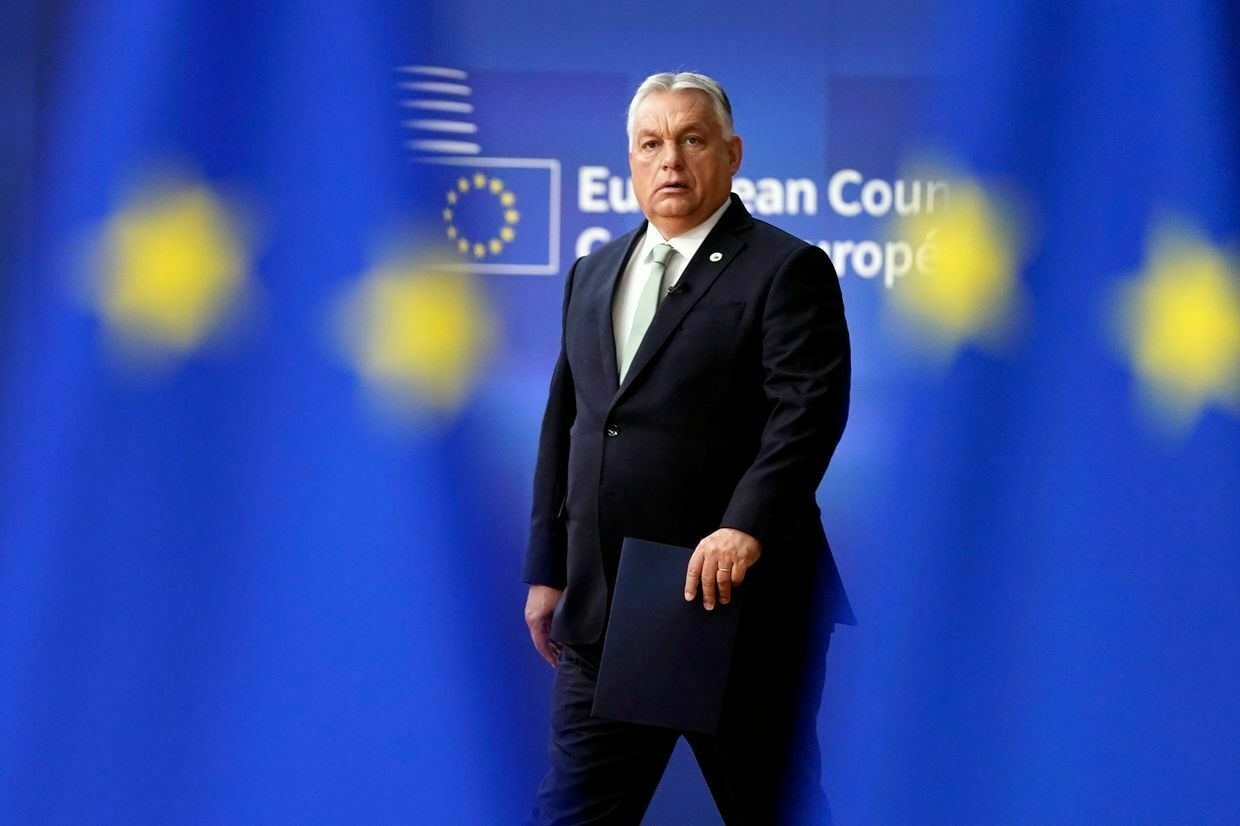
The European Council failed to unanimously adopt a statement of support for Ukraine during its June 26 meeting in Brussels, after Hungary once again failed to support it.
On the eve of the European Council summit, Hungary’s government announced on June 26 that 95% of participants in a so-called “national consultation” opposed Ukraine’s accession to the EU.
The highly-particized plebiscite, promoted by Prime Minister Viktor Orban’s government, has already drawn criticism over its credibility and turnout, raising concerns that Orban may use its results to justify future resistance to Ukraine’s EU accession.
To register their “vote” in the national consultation, Hungarian citizens received their “ballot” in the post, together with a letter from Orban urging people to vote against.
According to the European Council’s statement, the document found “firmly supported” by 26 out of the 27 states. All EU states, except Hungary, reaffirmed Ukraine’s “inherent right to choose its own destiny” and support for the country’s “path towards EU membership."
“The European Council commends Ukraine for the pace of its accession-related reforms under the most challenging circumstances, welcomes the significant progress achieved, and encourages Ukraine and the Commission to intensify work in the accession process,” the statement read.
EU member states also agreed to take note of the Commission’s assessment that Ukraine is ready to open the Fundamentals cluster. However, formal negotiations can only begin with the unanimous consent of all 27 member states.
Ukraine applied for EU membership shortly after Russia launched its war in 2022 and was granted candidate status within months.
As an EU member, Hungary has veto power over further progress.
Orban said he voted against Ukraine’s accession to the EU in the consultation, publicly sharing photos of himself marking “against” on the poll ballot. He warned earlier this year that allowing Kyiv to join the EU would “destroy” Hungary.
With Trump disengaged and EU complacent, Ukrainian reforms lose momentumRussia’s all-out war has accelerated Ukraine’s push to join the European Union and NATO, as well as its dependency on Western loans and aid. Before, these things would have been heavily preconditioned on Ukraine implementing crucial reforms. However, the war has also eased the pressure on Kyiv to carry outThe Kyiv IndependentOleg Sukhov
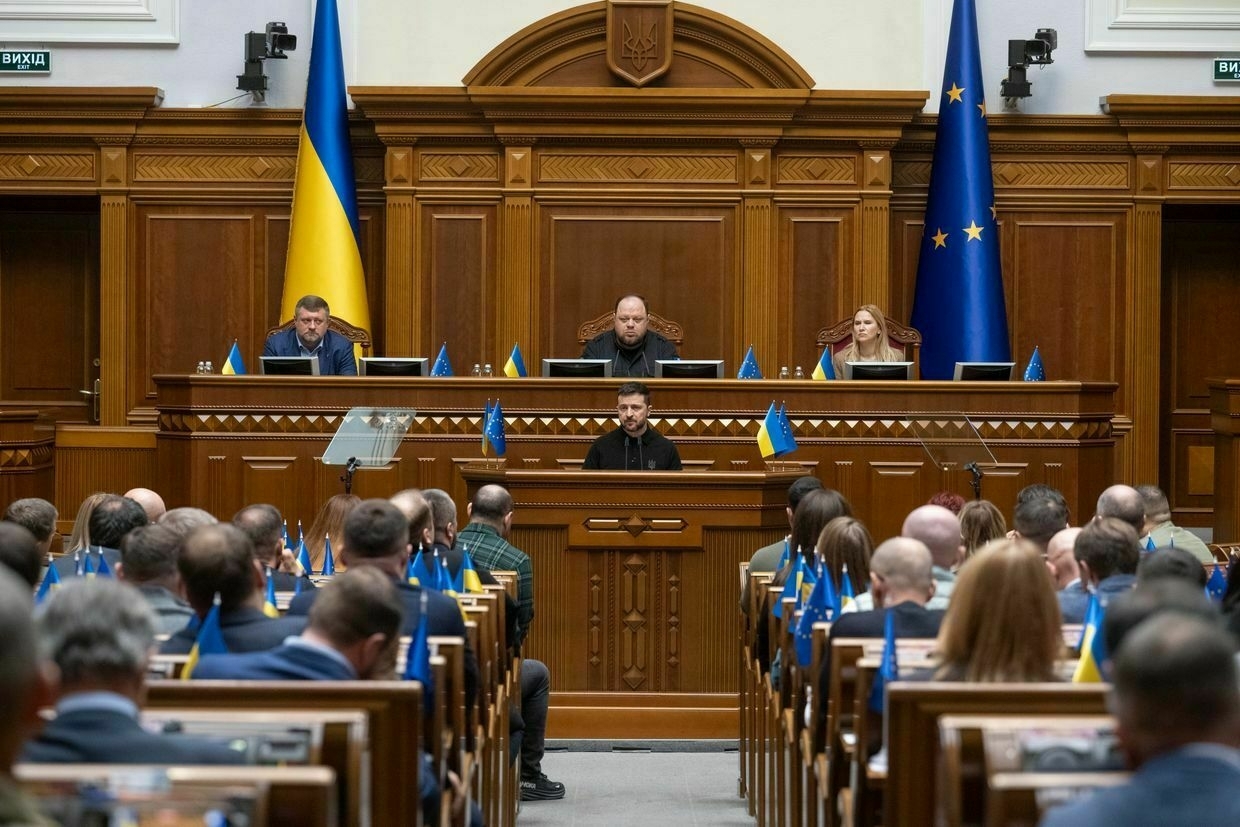
-
Trump and Zelenskyy meet in the Hague – What does that mean for Ukraine?
-
Ukrainian journalist to Trump: My husband is on the front line – his reaction surprised everyone
-
Ukraine to receive $46 million for repairs to Chornobyl sarcophagus after Russian strike
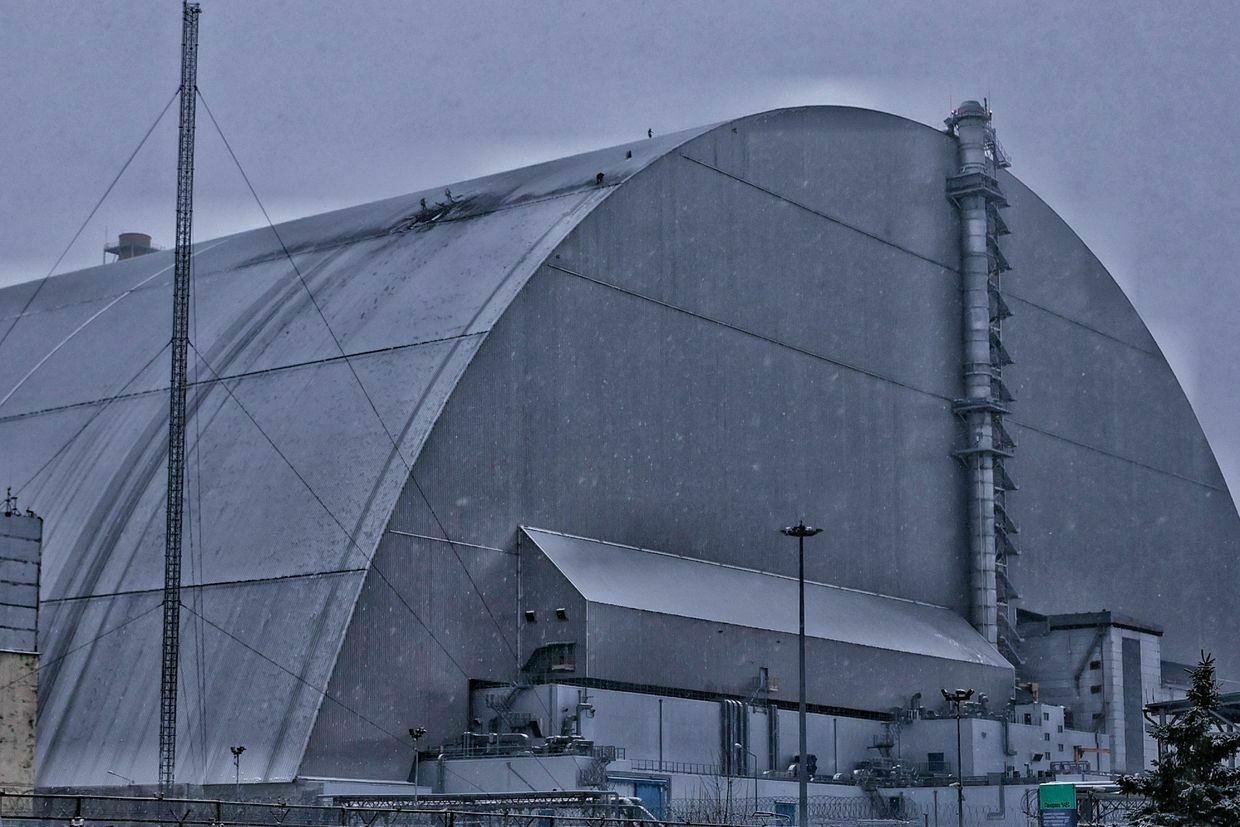
Ukraine will receive €42.5 million ($45.7 million) from international partners to repair the protective arch over the Chornobyl nuclear plant’s destroyed reactor, Environment and Natural Resources Minister Svitlana Hrynchuk announced on June 26.
A Russian Shahed-type drone struck the New Safe Confinement over Chornobyl’s destroyed 4th reactor on February 14.
The structure built to contain radioactive material was damaged, no serious radiation leaks were caused.
France pledged €10.6 million ($11.4 million), the United Kingdom committed €6.9 million ($7.4 million), and the European Commission contributed €25 million ($26.9 million) toward the repairs.
“This is further evidence that Ukraine does not face its challenges alone, but has reliable friends,” Hrynchuk wrote on Facebook.
The funding was announced at the European Bank for Reconstruction and Development (EBRD) headquarters in London during a meeting of the Chornobyl International Cooperation Account Assembly of Contributors – the governing body of the fund created to address Chornobyl Nuclear Power Plant issues.
Ukraine has already surveyed the building’s structure and completed preparatory work, Hrynchuk said. In March, €400,000 ($430,000) was allocated from the special fund for this purpose.
The assembly discussed plans for temporary repairs and further work to fully restore the arch’s integrity and functionality.
Chornobyl was the site of the world’s worst nuclear disaster in 1986, contaminating areas across Ukraine, Belarus, and Russia.
After an protective structure was built over the destroyed reactor to contain radioactive material in the months following the disaster, the current arch, an international project built as a more permanent solution, was completed in 2017.
Chornobyl isn’t safe anymore… againChornobyl disaster occurred in the early hours of April 26, 1986, in Soviet Ukraine. Nearly 39 years after the worst nuclear disaster in history, Russia’s brazen attack on the $2 billion New Safe Confinement (the sarcophagus enclosing the destroyed reactor) in February 2025 poses a new potential radioactive danger as engineers race to repair the damage. The Kyiv Independent’s Kollen Post dives into why the restoration is not as simple as it may seem.The Kyiv IndependentKollen Post

-
Trump vowed at NATO summit that Russia won’t attack alliance during his presidency, WP reports
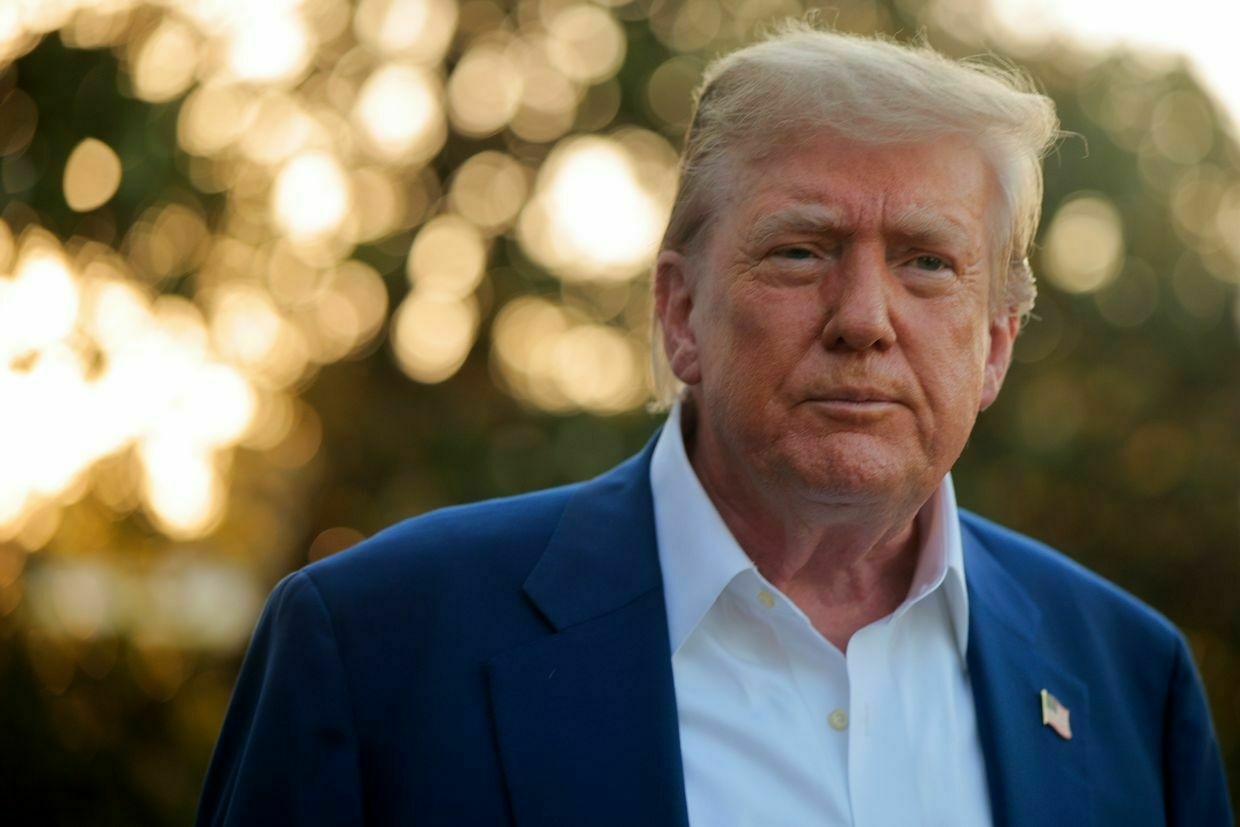
U.S. President Donald Trump promised during the NATO summit in The Hague that Russia would never attack the alliance while he is in office, the Washington Post reported on June 26, citing three unnamed European officials.
Speaking at a briefing in The Hague a day earlier, Trump, however, did not rule out that Russia has territorial ambitions beyond Ukraine.
“It’s possible,” he said.
Still, the U.S. president immediately downplayed Moscow’s threat and aggression against Ukraine, saying Russian President Vladimir Putin was “misguided."
Foreign officials and EU diplomats have increasingly called for the preparation for a potential full-scale conflict between NATO and Russia.
Trump’s remarks came days after President Volodymyr Zelensky said that Ukraine’s intelligence has proof that Russia is preparing new military operations in Europe and just a week after Putin declared “all of Ukraine is ours."
During the summit, NATO Secretary General Mark Rutte called on alliance members to be realistic about the threats posed by Russia and China. Previously, he warned that Russia could be ready to launch an attack against the alliance within five years.
Amid rising threats from Russia, NATO member states have agreed to a new defense spending benchmark, committing to allocate 5% of their gross domestic product annually to defense and security-related expenditures by 2035.
In early June, German intelligence chief Bruno Kahl said Russia may try to test NATO’s unity with provocations beyond Ukraine, as some Russian officials believe that the alliance’s collective defense principle no longer works.
Putin under pressure to declare war on Ukraine, but experts say Russia isn’t readyDespite suffering over 1 million casualties, pounding Ukrainian cities nightly with missiles and drones, and committing countless war crimes, one startling fact about Russia’s full-scale invasion remains — Moscow has yet to officially declare war on Ukraine. In February 2022, Russian President Vladimir Putin described what he believed was going to be a swift victory and the capture of Kyiv within days as a “special military operation.” Nearly three-and-a-half years later, the Kremlin is stuck The Kyiv IndependentChris York
The Kyiv IndependentChris York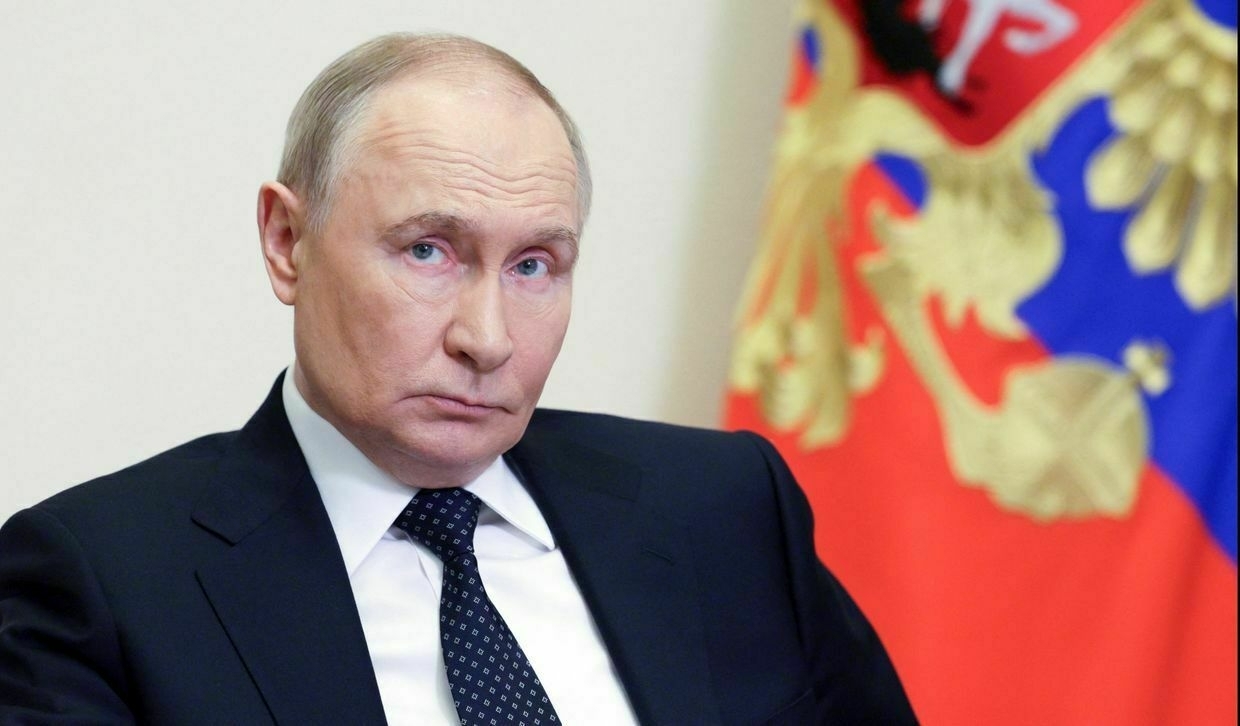
-
Ukraine’s NATO membership – a long road full of challenges
-
Kyrgyz citizen pleads guilty to illegally exporting US firearms to Russia
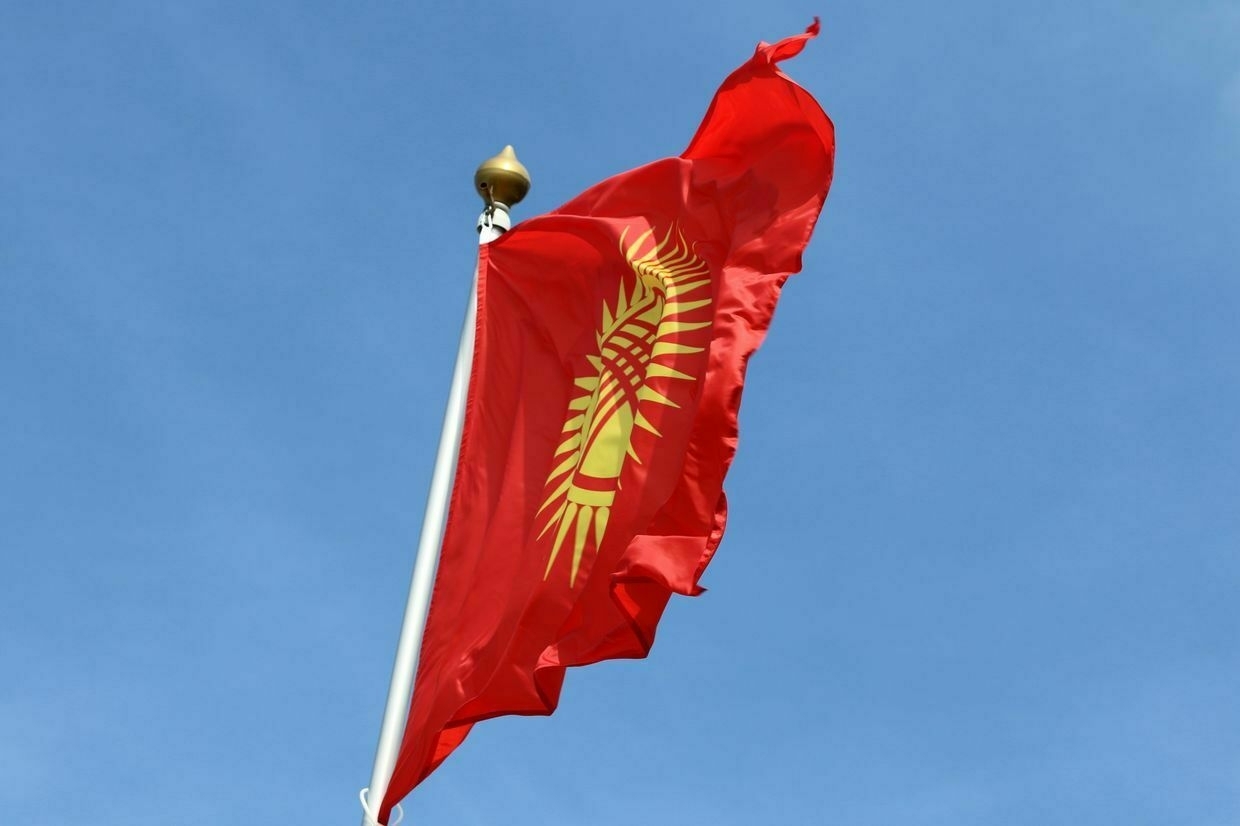
Sergei Zharnovnikov, a 46-year-old citizen of Kyrgyzstan, pleaded guilty in New York federal court on June 25 to a conspiracy to illegally export U.S.-made firearms to Russia and smuggling, the U.S. Department of Justice announced.
According to the statement, the defendant exported firearms and ammunition worth more than $1.5 million from the U.S. to Russia, violating U.S. law.
“The defendant admitted that he purchased American-made, military-grade firearms and re-exported them to Russia,” U.S. Attorney Joseph Nocella for the Eastern District of New York said.
“Today’s guilty plea is the culmination of extensive investigative work, showing that this office will not allow merchants of lethal weapons and Russia to flout U.S. sanctions."
According to court records, Zharnovnikov, owner of a Bishkek-based arms company, conspired to export U.S. firearms to Russia starting in March 2020. He signed a $900,000 contract with a U.S. company to send weapons to Kyrgyzstan, using a Department of Commerce export license that specifically banned re-export to Russia.
Despite the restriction, Zharnovnikov allegedly sent semi-automatic hybrid rifle-pistols to Russia via Kyrgyzstan without proper permits. Shipping records show the weapons left JFK Airport in July 2022. By November, a Russian client listed those same weapons on a tax form.
Upon sentencing, Zharnovnikov could face up to 20 years in prison.
’50,000 Russian troops pinned down’ — Ukraine halts advance in Sumy Oblast, summer offensive ‘faltering,’ Syrskyi says“This year’s wave of the enemy’s ‘summer offensive’ from Russian territory is faltering,” Commander-in-Chief Oleksandr Syrskyi said. The Kyiv IndependentTim Zadorozhnyy
The Kyiv IndependentTim Zadorozhnyy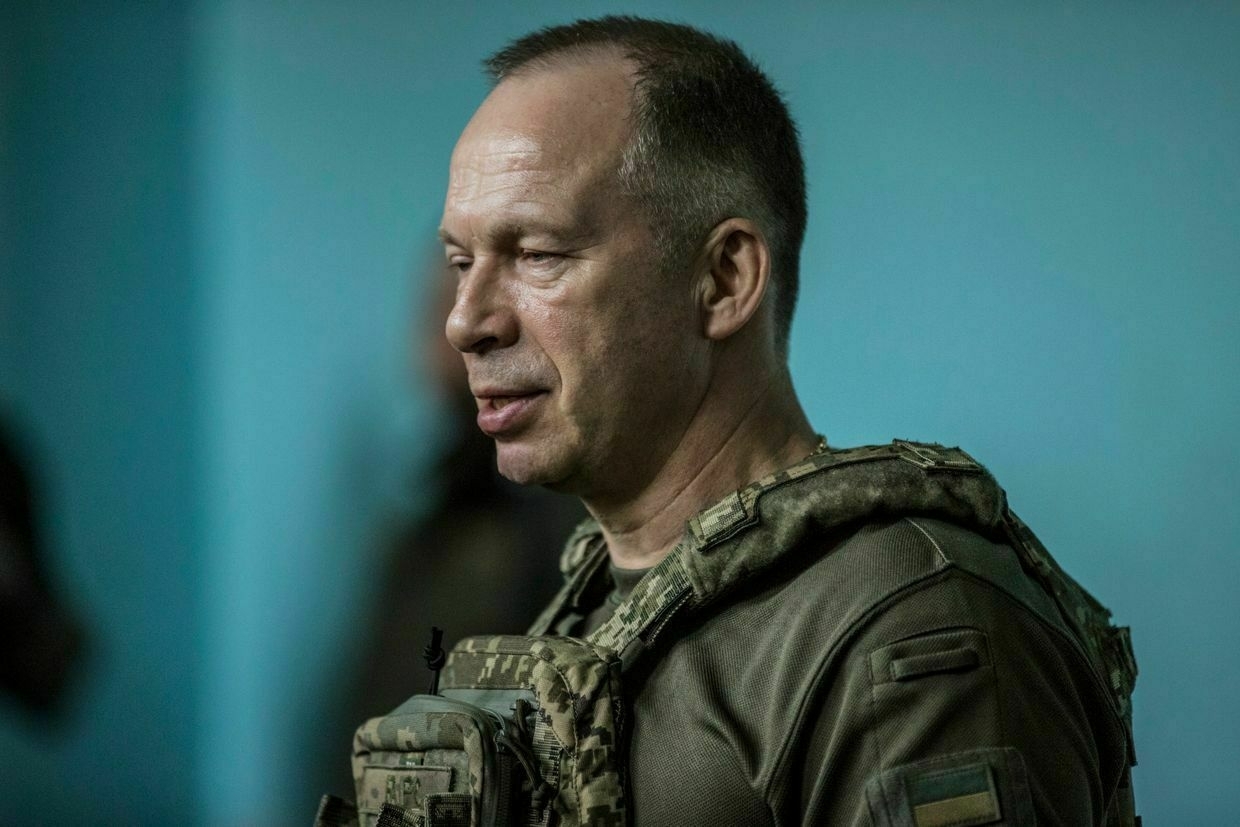
-
4000 rescued – A nun from Argentina helps Ukraine
-
Influence as a service: l’illustration de la Dame de Sochi
Au cœur des démocraties libérales, la liberté d’opinion demeure un pilier intangible. Mais c’est précisément cette valeur, socle du débat public ouvert, que certains États malveillants exploitent désormais à des fins d’ingérence. Plutôt que de recourir aux traditionnels faux comptes sur les réseaux sociaux – une méthode aujourd’hui obsolète et peu crédible – ces acteurs préfèrent désormais l’authenticité, ou du moins son apparence.
Bienvenue dans l’ère de l’« influence as a service », où les campagnes d’influence ne s’appuient plus sur des avatars anonymes, mais sur des figures bien réelles, suivies, et souvent rémunérées. Des influenceurs au service de causes géopolitiques, souvent sans le dire, louent leur audience à des États étrangers pour relayer des messages ciblés, construire des opinions favorables, ou décrédibiliser un camp adverse.
Ce modèle répond à plusieurs objectifs : capter des communautés fidèles, bénéficier de la crédibilité sociale de ces figures, et injecter des messages politiques dans des sphères souvent imperméables aux canaux classiques de communication institutionnelle. Loin d’être marginal, le phénomène s’impose comme l’un des leviers centraux des stratégies d’influence offensives, en particulier pour la Russie sur le continent africain.
En mai dernier, le DFRLab (Digital Forensic Research Lab) publiait une enquête édifiante : des influenceurs sud-africains y sont identifiés comme participants à des campagnes de désinformation sur la plateforme LIT, visant explicitement à relayer des messages anti-ukrainiens, dans le cadre d’une stratégie plus large d’opérations informationnelles pro-Kremlin.
Il ne s’agit donc nullement d’un débat d’idées ou de liberté d’expression, mais bien de la manipulation délibérée de ces principes à des fins offensives, agressives et profondément déstabilisatrices. Ce n’est plus la pluralité d’opinion qui est en jeu, mais sa subversion méthodique au service d’intérêts hostiles.
INPACT/AEOW a choisi de présenter plusieurs exemples liés à Nathalie Yamb, figure centrale d’un écosystème d’influence solidement structuré. Loin d’un simple activisme spontané, les enquêtes révèlent des dispositifs soigneusement planifiés, bénéficiant d’un soutien matériel et logistique en provenance directe de cercles liés à l’appareil russe. Coordination des relais, synchronisation des prises de parole, diffusion multi-plateforme et mobilisation de ressources techniques : les campagnes auxquelles elle participe illustrent un mode opératoire rationalisé, pensé pour maximiser l’impact informationnel. Plus qu’une voix singulière, Yamb apparaît comme un rouage stratégique d’un mécanisme d’influence externalisé, où la communication politique s’adosse à des moyens concrets, calibrés et orchestrés en amont.
La Côte d’Ivoire est dans le giron de la Russie qui va envoyer une délégation de consultants via les activités Wagner en Janvier 2019 (voir plus bas). Les premiers contacts publics de Nathalie Yamb avec la Russie remontent au printemps/été 2019 où elle est le bras droit d’un homme politique camerounais Mahmadou Koulibaly du parti LIDER, opposant au président Ouattara. Mahmadou Koulibaly est interviewé sur Sputnik en mai 2019. Ils partent en Russie chercher des financements pour préparer la campagne présidentielle ivoirienne de 2020. Dès lors, elle est identifiée comme une figure intéressante pour communiquer les messages russes en Afrique et auprès des diasporas africaines et reviendra de multiples fois en Russie, notamment comme invitée de premier plan à des forums de haut niveau réunissant exclusivement
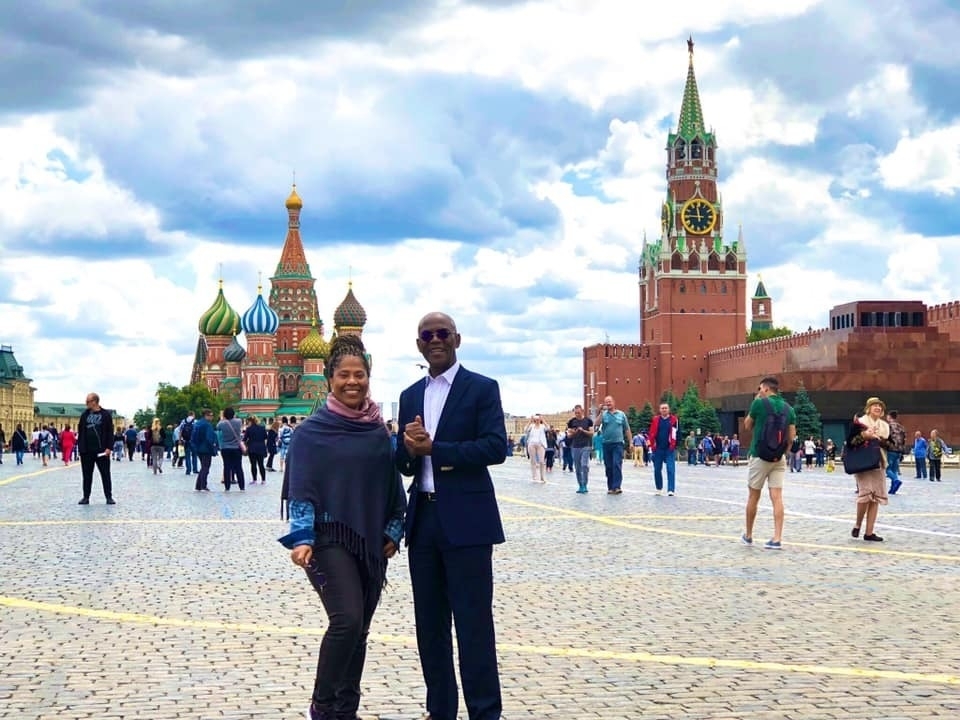
L’équipe du parti LIDER à Moscou en Juillet 2019 Le Projet AFRIC
L’engagement de Nathalie Yamb auprès de la Russie est rendu public via la structure AFRIC qui se présentait comme un think tank pour penser l’Afrique différemment mais aussi un groupe d’observateurs des élections en Afrique. En réalité, ce groupe créé de toute pièce au sein du Back Office du groupe Wagner était un projet d’influence au service des intérêts russes et participant notamment au soutien de candidats africains poussés par le Kremlin et comme agence de détection des talents africains susceptibles de porter les messages de Kremlin.
Nathalie Yamb apparait à plusieurs événements en Russie et en Europe aux côtés des cadres du Back Office de Prigojine à présent sous sanctions internationales.
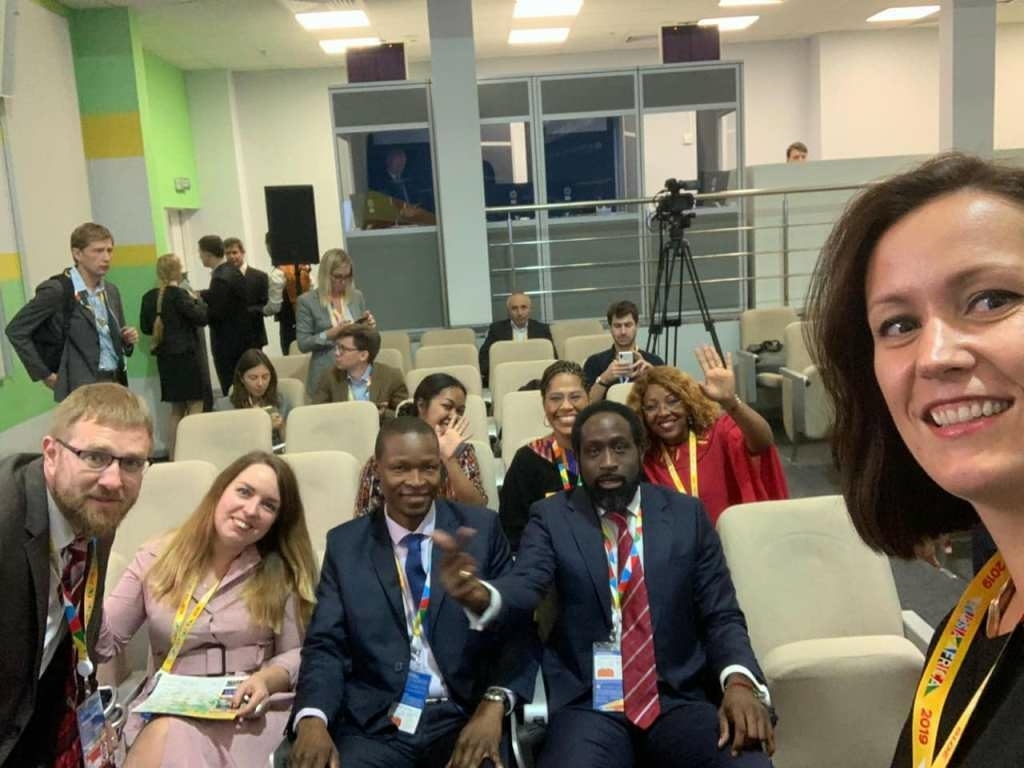
Octobre 2019 avec l’équipe de AFRIC/ Back Office à Sochi 
Nathalie Yamb avec l’équipe de AFRIC et du Back Office de Prigojine dont Yulia Afanasayeva Berg, cadre des opérations d’influence russe sur l’Afrique 
A Berlin Il est à noter que la mort de Evgeny Prigojine n’a pas enrayé les liens entre l’appareil d’état russe et Nathalie Yamb qui a participé notamment à l’animation du référendum russe dans les territoires occupés en Ukraine en September 2023 à l’initiative du gouvernement russe avec d’autres ex membres d’AFRIC et du back office Wagner.
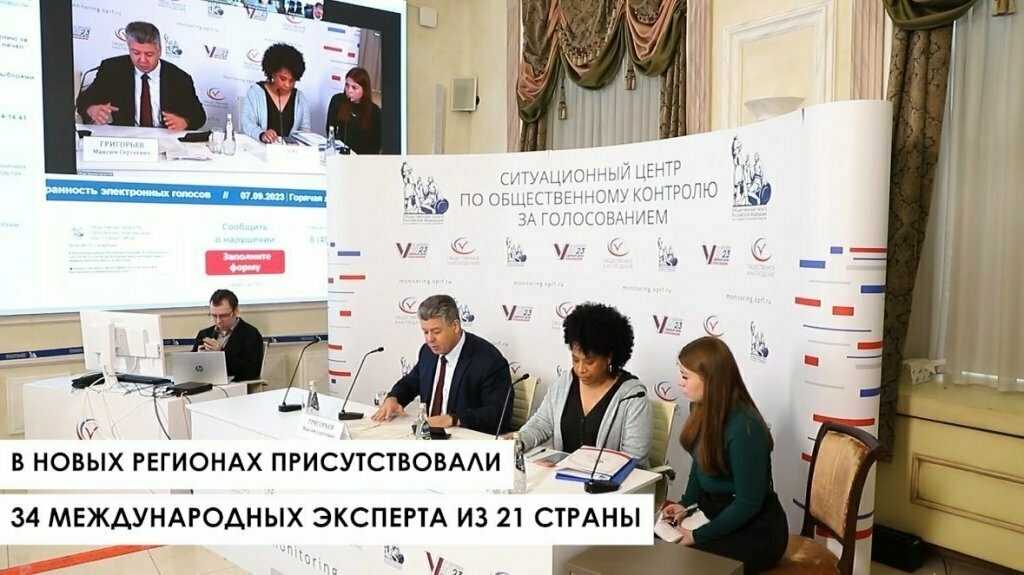
Nathalie Yamb anime le scrutin organisé dans les territoires occupés ukrainiens en Septembre 2023 Soutien planifié et matériel russe aux actions de communication de l’influenceuse
Mais, l’utilisation des influenceurs pour soutenir des actions d’influence offensives va plus loin que la simple concordance des positions politiques. Il s’agit d’une entreprise bien préparée. INPACT/AEOW a pu obtenir au cours des trois derniers années des documents provenant des bureaux de la holding Concord appartenant à Evgeny Prigojine et gérant les activités du groupe Wagner dont la partie influence avec un bureau Afrique très actif nommé “back office” ou “Africa Politology”. Ces documents décrivent une partie des actions d’influence créées et déployées par ce back office, listent les employés et leurs salaires, donnent les budgets des actions de communication et les rémunérations des médias et de certaines personnes comme Kémi Seba. Ce sont des documents de pilotage de projets (dont AFRIC), de budgets et des stratégies et plans d’action pour étendre l’influence de la Russie sur le continent Africain. Ils démontrent donc l’existence d’une stratégie de communication pensée, planifiée et déployée à des fins offensives pour accroître l’acceptabilité du groupe Wagner, promouvoir les intérêts de la Russie, décrédibiliser leurs compétiteurs (l’occident) et servir les interêts de leurs clients.
Un document budgétaire en particulier rapporte le paiement du déplacement de Nathalie Yamb à une conférence de la Chambre Civique de la Fédération de Russie en décembre 2019. Africa Politology finance son visa, ses nuits d’hôtel à Moscou, ses billets d’avion et son transport mais la deffraie aussi de 16000 roubles (environ 228 euros en 2019).
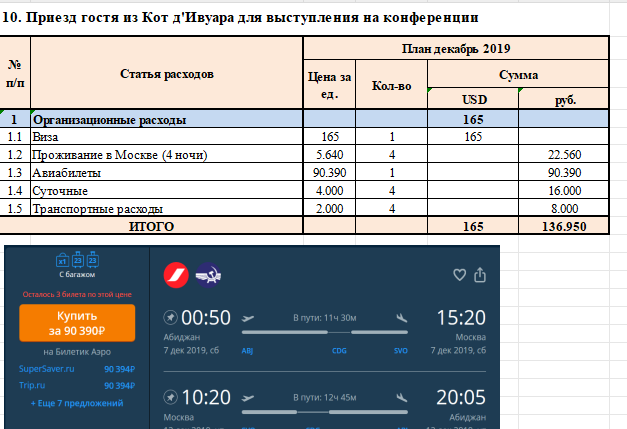
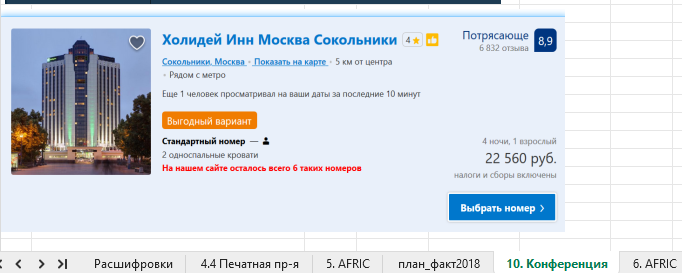
Extrait d’un document budgétaire de Africa Politology Le billet d’avion est pris pour un départ depuis Abidjan en Côte d’Ivoire le 7 décembre 2019. Mais Nathalie Yamb se retrouve expulsée de Côte d’Ivoire le 2 décembre 2019 suite à son intervention au Sommet de Sochi.
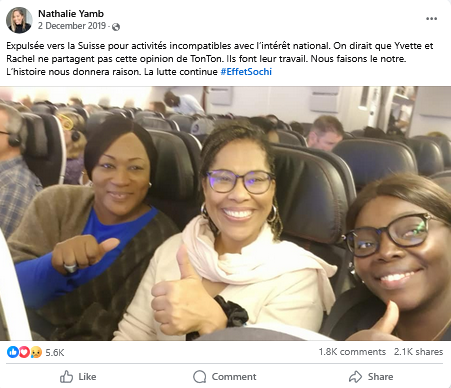
Facebook – Nathalie Yamb Elle partira en fait de Suisse à la conférence aux côtés de l’équipe AFRIC.
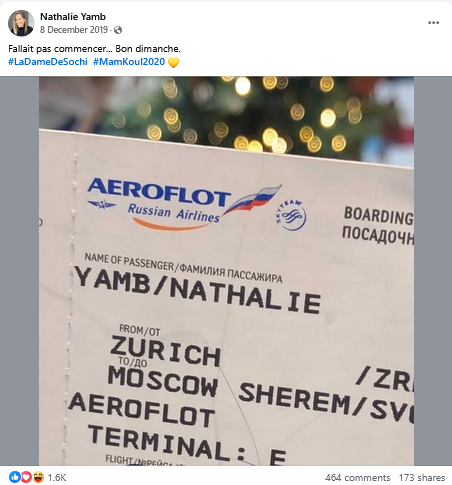
Facebook – Nathalie Yamb 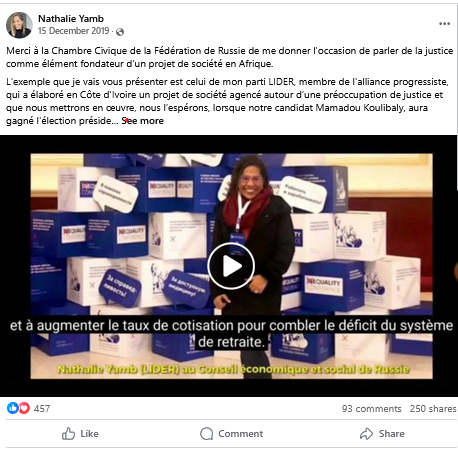
Facebook – Nathalie Yamb D’ailleurs, les dépenses liées à Nathalie Yamb sont notées sous le code “RP/39” dans le budget du Back Office/Africa Politology et font référence à plusieurs interventions de l’influenceuse en Russie et en Europe.

Extrait des documents budgétaires du Back Office/Africa Politology Avant son départ de Cote d’Ivoire en décembre 2019, les équipes du Back Office/Africa Politology organiseront une mission sur place en Janvier 2019 comprenant des enquêtes d’opinion par téléphone, des focus groupes, le paiement d’un ou plusieurs experts sur place pour un montant total de 2240 USD et un pourboire de 1200 USD pour l’expert.

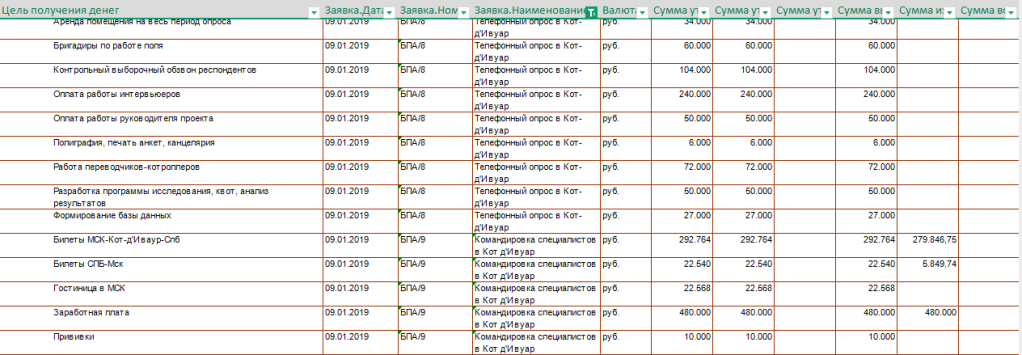
Extrait des documents budgétaires du Back Office/Africa Politology DCI, la campagne improbable
INPACT/AEOW a identifié plusieurs campagnes coordonnées impliquant des médias russes et des actifs numériques, menées en synergie avec des influenceurs. Parmi elles, l’une des plus surprenantes demeure la campagne visant la société française DCI — un sujet particulièrement technique, éloigné tant des thématiques habituellement portées par Nathalie Yamb que des centres d’intérêt de ses audiences. Ce cas emblématique illustre parfaitement les ressorts de l’« influence à louer » : une opération manifestement exogène, sans lien organique avec l’écosystème de l’influenceuse, mais intégrée à sa communication dans une logique d’orchestration stratégique.
Le 26 novembre 2022, le canal Telegram RYBAR – un blog militaire russe d’abord financé par le groupe Wagner, puis soutenu par ROSTEC, fleuron du complexe militaro-industriel russe – publie un post accusateur sur l’implication de la France dans le soutien à l’Ukraine. L’attention se porte notamment sur la société française DCI (Défense Conseil International), opérateur du ministère des Armées chargé de la formation, du conseil et du suivi des transferts d’armement à l’international. Le post met également en lumière les activités de DCI en Afrique, dans une tentative à peine voilée de nourrir une rhétorique anti-française.
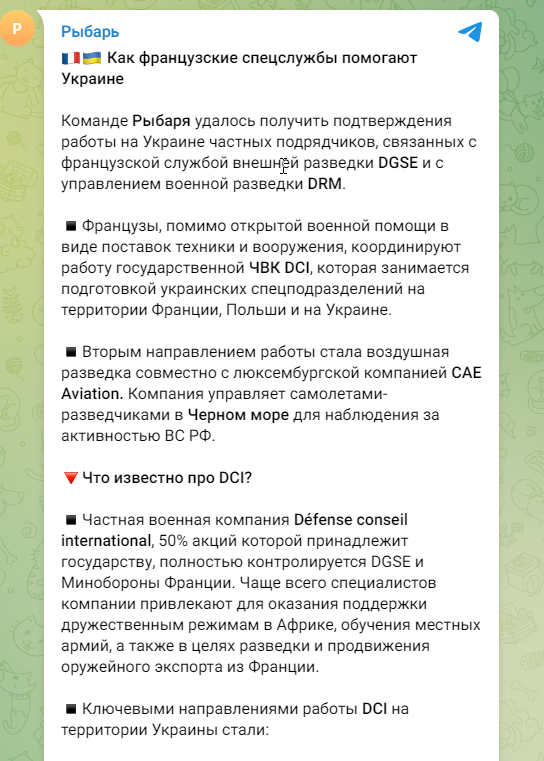
Post initial sur Telegram de Rybar le matin Le même jour, le compte X de Rybar republie le message en anglais, finalement noyé dans le flot d’informations.

Compte Rybar sur X le soir Bien qu’il s’agisse d’un sujet particulièrement technique et peu médiatisé, il va rapidement trouver un écho grâce à Nathalie Yamb, qui s’en empare pour le relayer auprès de ses audiences. Sa reprise permet au narratif d’être propulsé dans les sphères informationnelles africaines, où il sera amplifié et intégré dans un discours plus large de contestation de la présence française sur le continent.
Nathalie Yamb publie un thread nourri d’images sur X sur DCI et son action en Afrique le 27 Novembre en début d’après-midi. Cette fois-ci le récit est focalisé sur DCI comme société paramilitaire agissant en Afrique et dont la DGSE est l’actionnaire afin de nullifier l’attention portée sur les activités du groupe Wagner sur le continent.
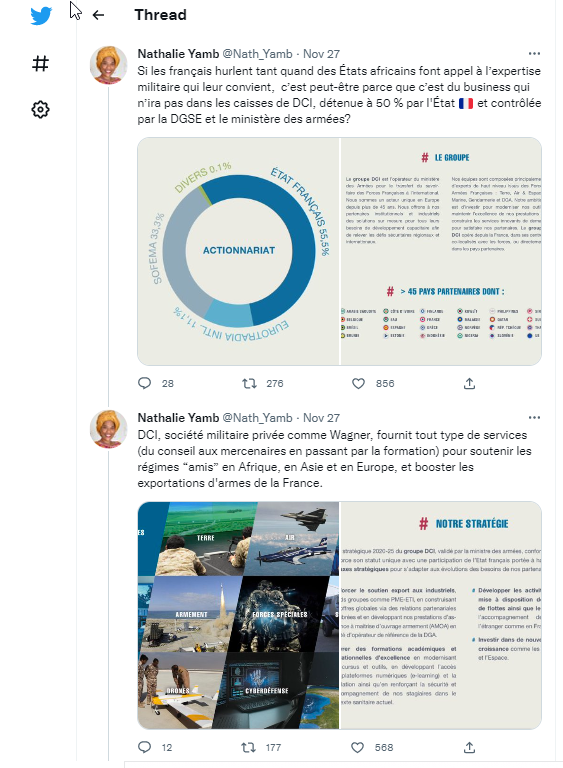
Rapidement, le post est relayé sur deux jours par des comptes authentiques mais probablement aussi amplifié par des comptes inauthentiques sur un ensemble de plateformes: X, Facebook et Telegram. Difficile d’imaginer la résonnance du sujet de DCI auprès des communautés de Nathalie Yamb, ni même de son arrivée sur le radar de l’influence.
A louer: promotion d’autres pays?
La Russie est-elle le seul État à avoir eu recours aux services de Nathalie Yamb ? Y-a-t-il coordination des efforts? La question reste ouverte. Si son rôle dans les campagnes pro-Kremlin est bien documenté, INPACT/AEOW a également relevé des prises de position alignées sur les intérêts chinois, notamment au plus fort de la crise du Covid-19 en 2020. Plusieurs contenus relayés à l’époque faisaient l’éloge de la gestion sanitaire chinoise, tout en mettant en avant la supériorité géopolitique et technologique de Pékin face aux démocraties occidentales. Ces éléments suggèrent que l’influence à louer pourrait s’exercer au bénéfice de plusieurs commanditaires, selon les conjonctures.

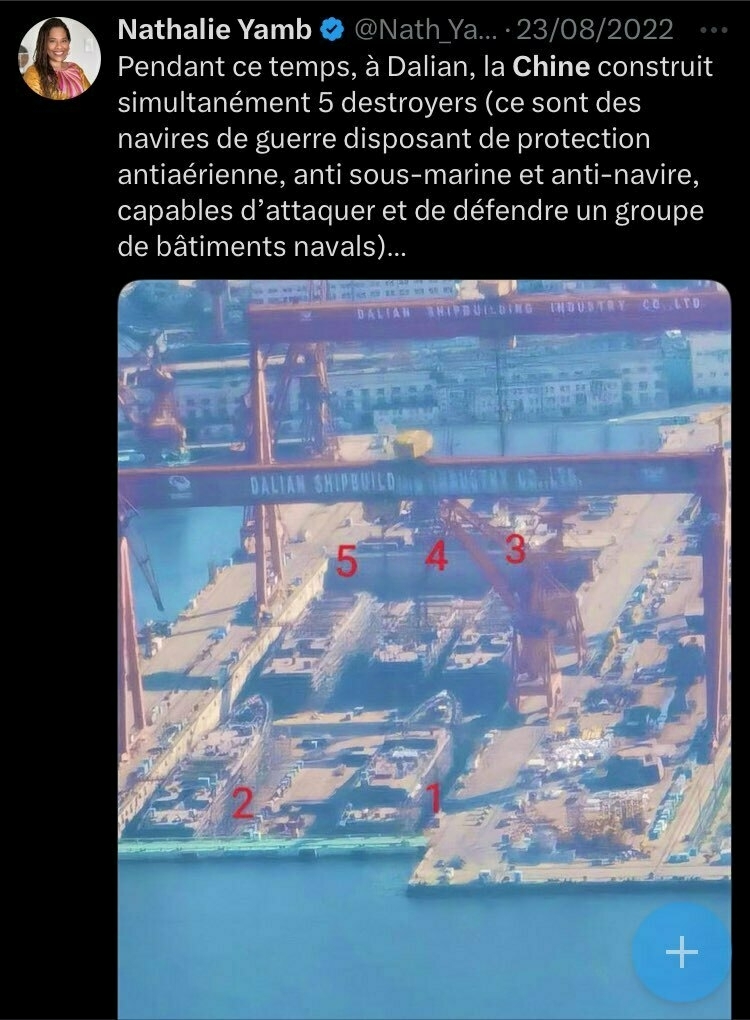

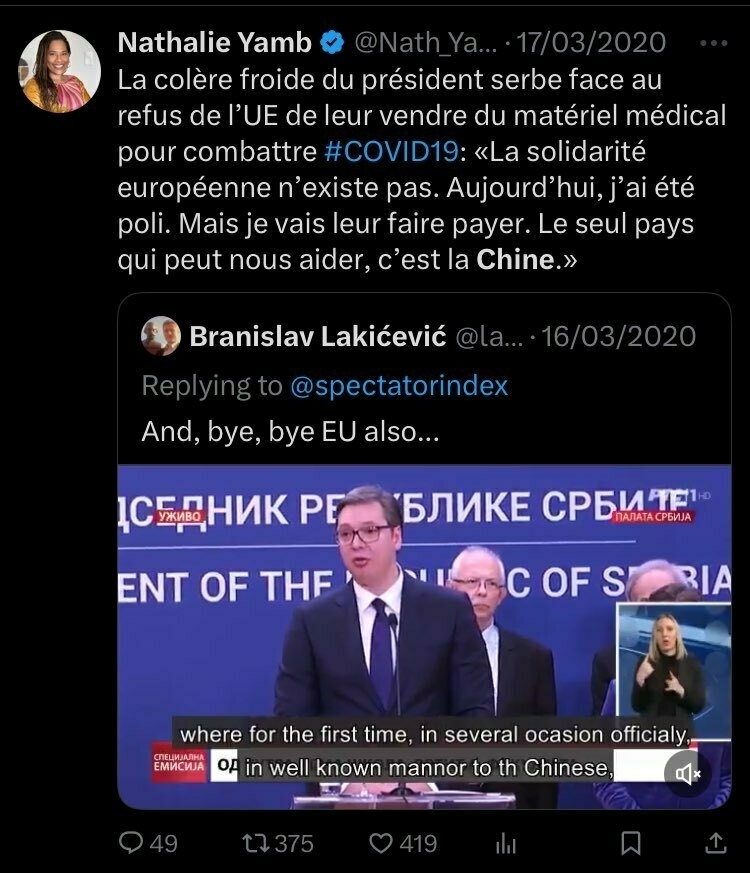
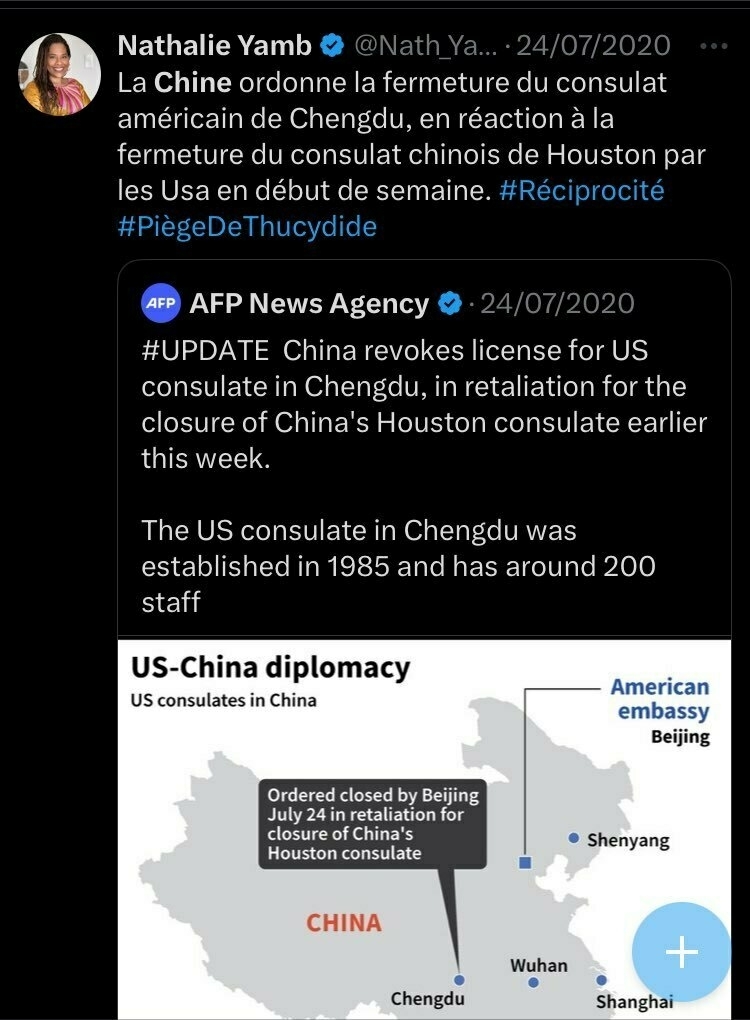

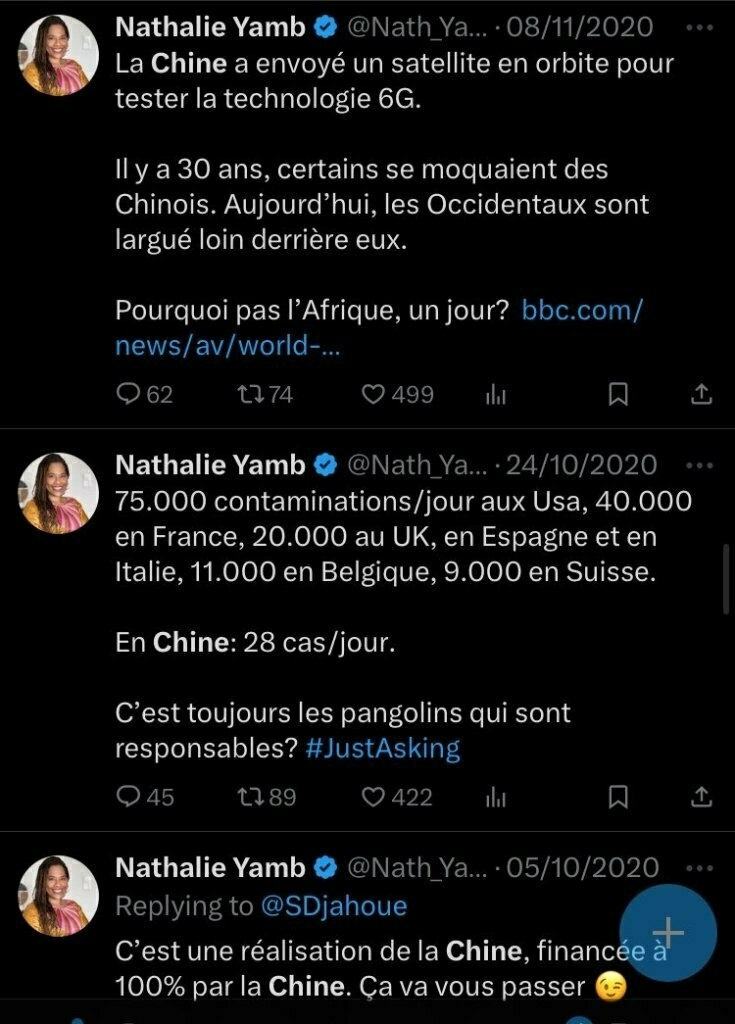


-
Ukraine Reforms Tracker Weekly — Issue 31
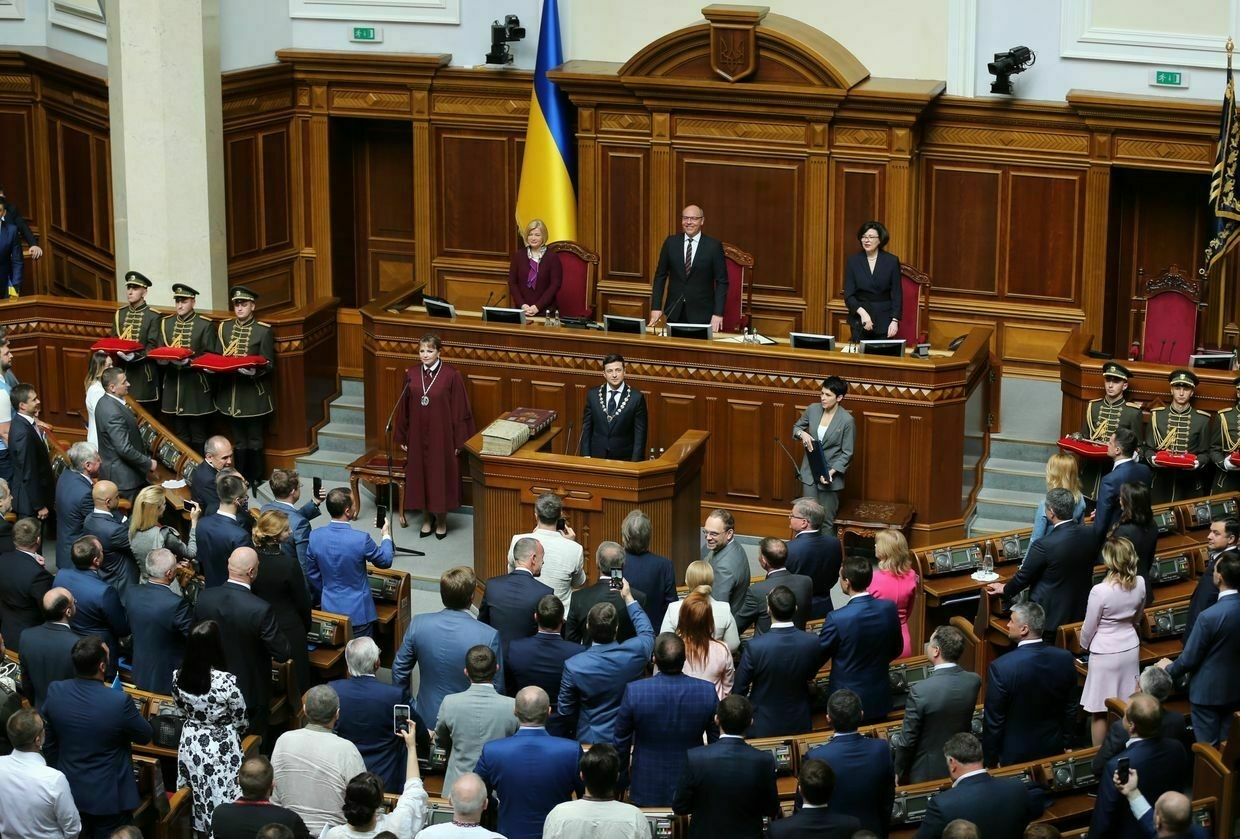
Editor’s note: This is issue 31 of Ukrainian lawmaker Yaroslav Zhelezniak’s weekly “Ukraine Reforms Tracker” covering events from June 17–June 24, 2025. The digest highlights steps taken in the Ukrainian parliament related to business, economics, and international financial programs.
The Kyiv Independent is republishing with permission.
Benchmarks and soft commitments with the IMFNABU detective wins contest to lead Ukraine’s Bureau of Economic Security
On June 24, the recruitment commission selected National Anti-Corruption Bureau of Ukraine (NABU) detective unit head Oleksandr Tsyvinskyi as the next director of Ukraine’s Bureau of Economic Security (BES), following a vote by the commission’s three international members.
Tsyvinskyi has served at NABU since 2015 and currently leads its detective division. He is known for his key role in the “Clean City” operation targeting corruption in Kyiv city’s land and budget sectors.
No other candidate secured the legally required support from the commission’s international members. As a result, Tsyvinskyi’s name alone will be submitted to the prime minister and the Cabinet of Ministers must finalize the appointment within 10 days.
Ukraine’s Cabinet moves to add Hr 412 billion for defense, Hr 449 billion in total in major 2025 budget revision
Ukraine’s Cabinet of Ministers has approved amendments to the 2025 state budget to allocate an additional Hr 412.4 billion ($9.9 billion) for defense spending, amid a widening fiscal gap in the security sector.
The total proposed adjustment increases expenditures by Hr 448.8 billion ($10.8 billion), while cutting other programs by Hr 51.3 billion. Net spending would rise by Hr 397.5 billion ($9.5 billion).
To balance the revision, the government plans to raise Hr 147.5 billion ($3.5 billion) in additional revenue and borrow another Hr 250 billion ($6 billion) through debt operations.
The draft legislation is expected to be submitted to parliament shortly.
Obligations to the EUUkraine passes long-delayed ARMA reform
After months of political delays, the Ukrainian parliament has passed bill #12374-d on reforming the Asset Recovery and Management Agency (ARMA) in its entirety, with 253 votes in favor.
The law introduces new requirements for the agency’s leadership, mandates a selection process involving international experts, and strengthens transparency in asset management and transfer controls. Passage of the reform is a key benchmark under the EU’s Ukraine Facility program and unlocks a 600 million euros ($701 million) disbursement.
However, implementation will be delayed. Yuliia Tymoshenko and members of her Batkivshchyna faction have submitted a resolution to block the law, preventing the speaker of parliament from signing it until July 15.
However, no votes were held on other legislative commitments under the program that were due by the end of Q2. The next parliamentary session is scheduled for July.
Other key economic issuesUkraine’s vice prime minister formally named as corruption suspect
Ukraine’s National Anti-Corruption Bureau (NABU) and the Specialized Anti-Corruption Prosecutor’s Office (SAPO) have served a formal notice of suspicion to Vice Prime Minister and National Unity Minister Oleksii Chernyshov, accusing him of abuse of office and accepting improper benefits.
Chernyshov announced his visit to NABU in a Facebook post earlier the same day. He is linked to an ongoing investigation into a Kyiv real estate development case involving land allocations
As NABU claims, “a Kyiv-based property developer was obliged to give the state a share of the future apartments proportionate to the value of the land received from a state-owned enterprise. To minimize this share, the land and buildings on it were undervalued by nearly five times, with the discrepancy between this appraisal and the market value exceeding Hr 1 billion ($24 million).
As a “reward” for successfully setting up the scheme, the developer provided substantial discounts on apartments in completed residential complexes. With these discounts, the price per square meter ranged from Hr 1,000 ($24) to Hr 8,000 ($192), while the minimum market price was around Hr 30,000 ($720) per square meter.
‘Alarms went off everywhere’ — Explosions reported in Moscow, Russia claims 50 Ukrainian drones downed across countryExplosions were reported in Moscow overnight on June 26, prompting airport closures, as Mayor Sergey Sobyanin claimed that two drones were shot down.The Kyiv IndependentVolodymyr Ivanyshyn
